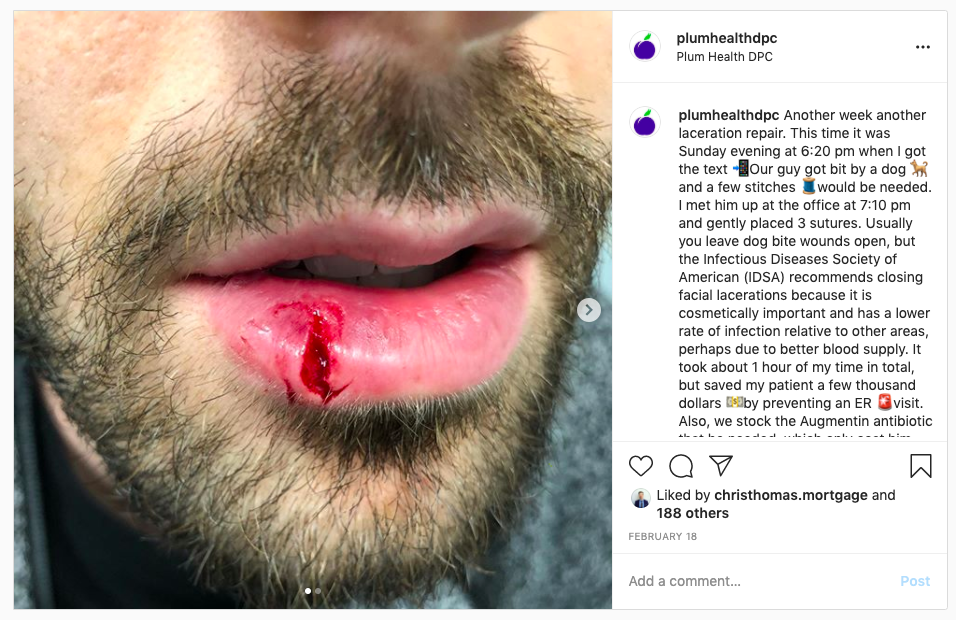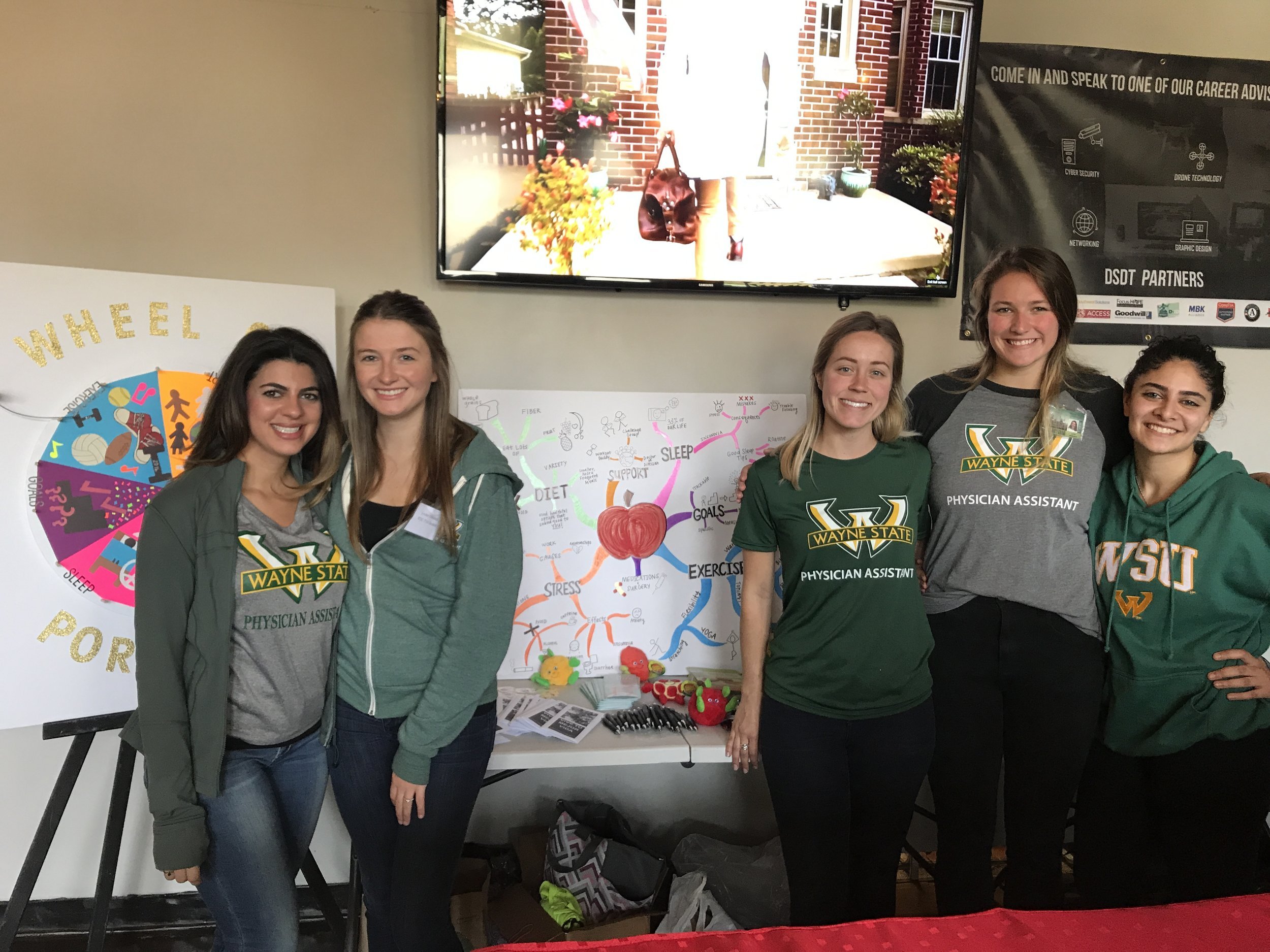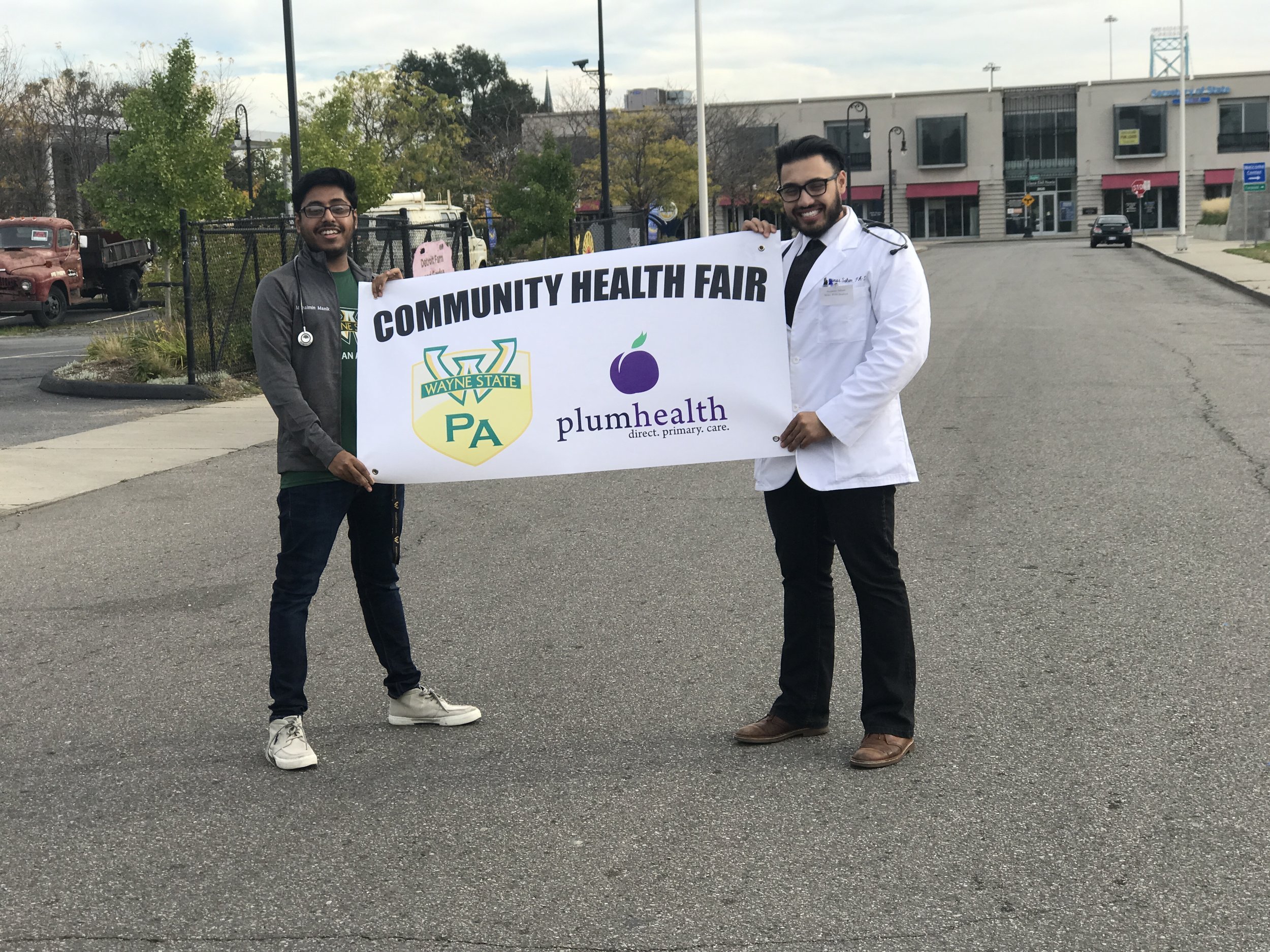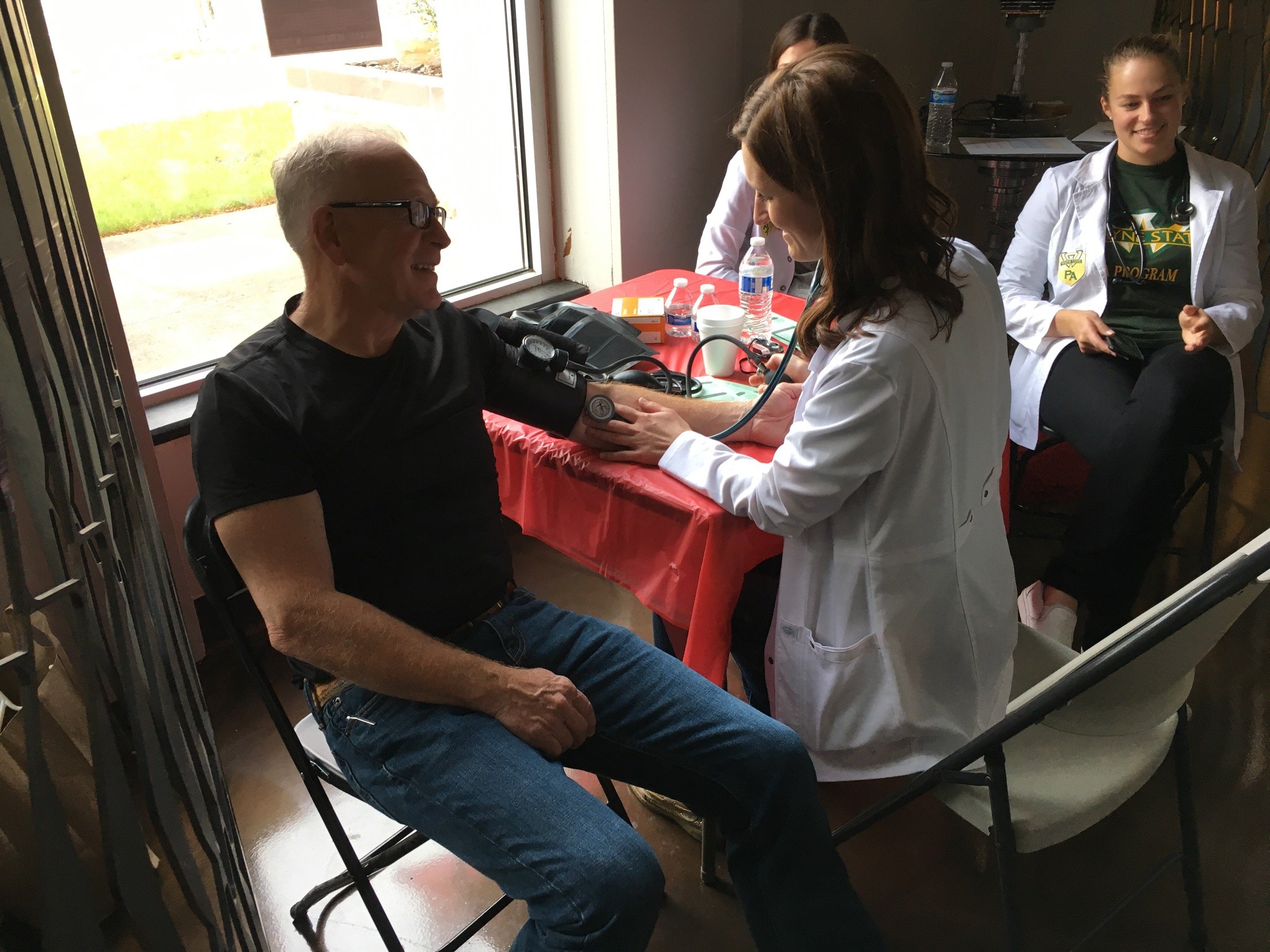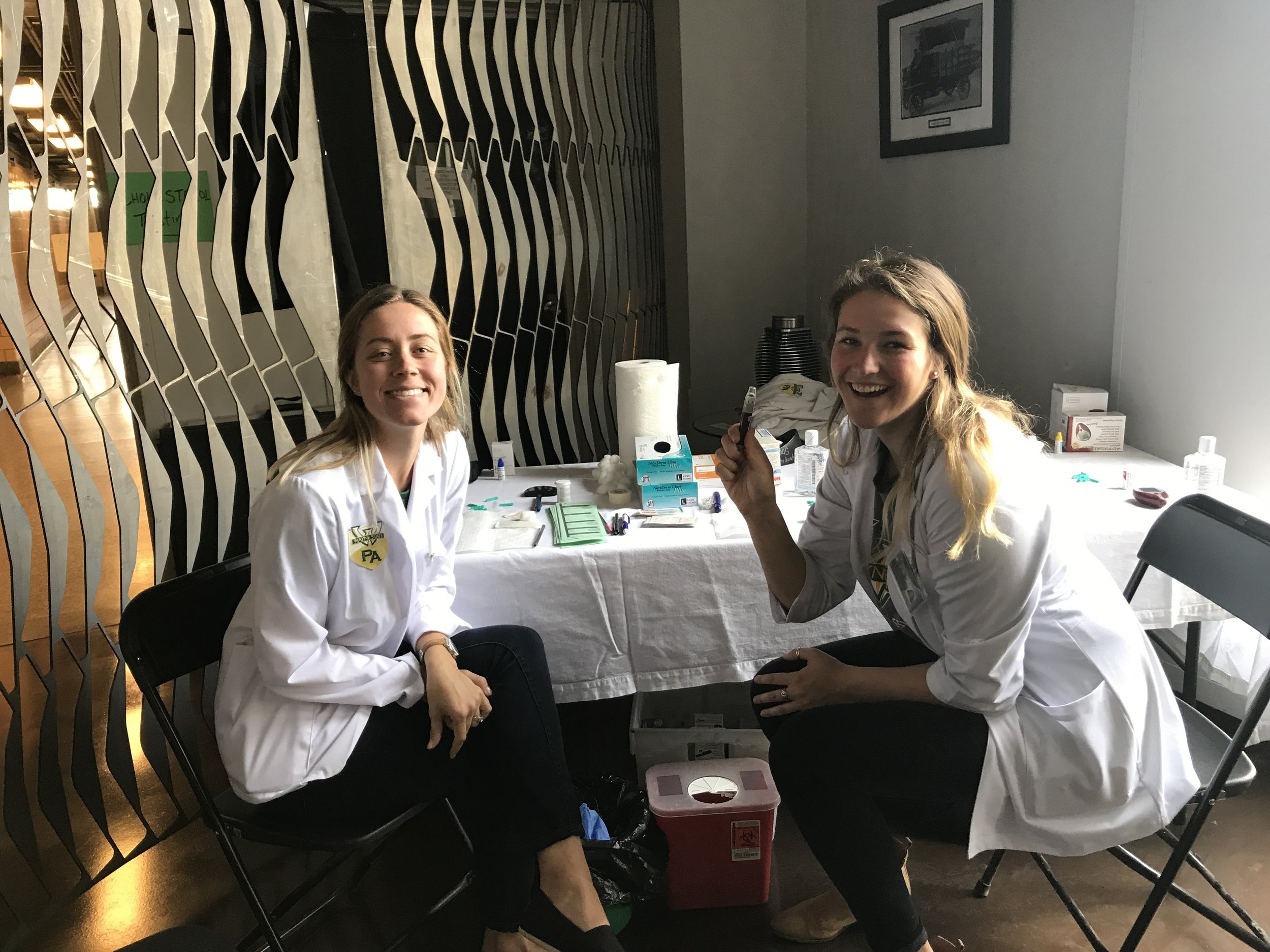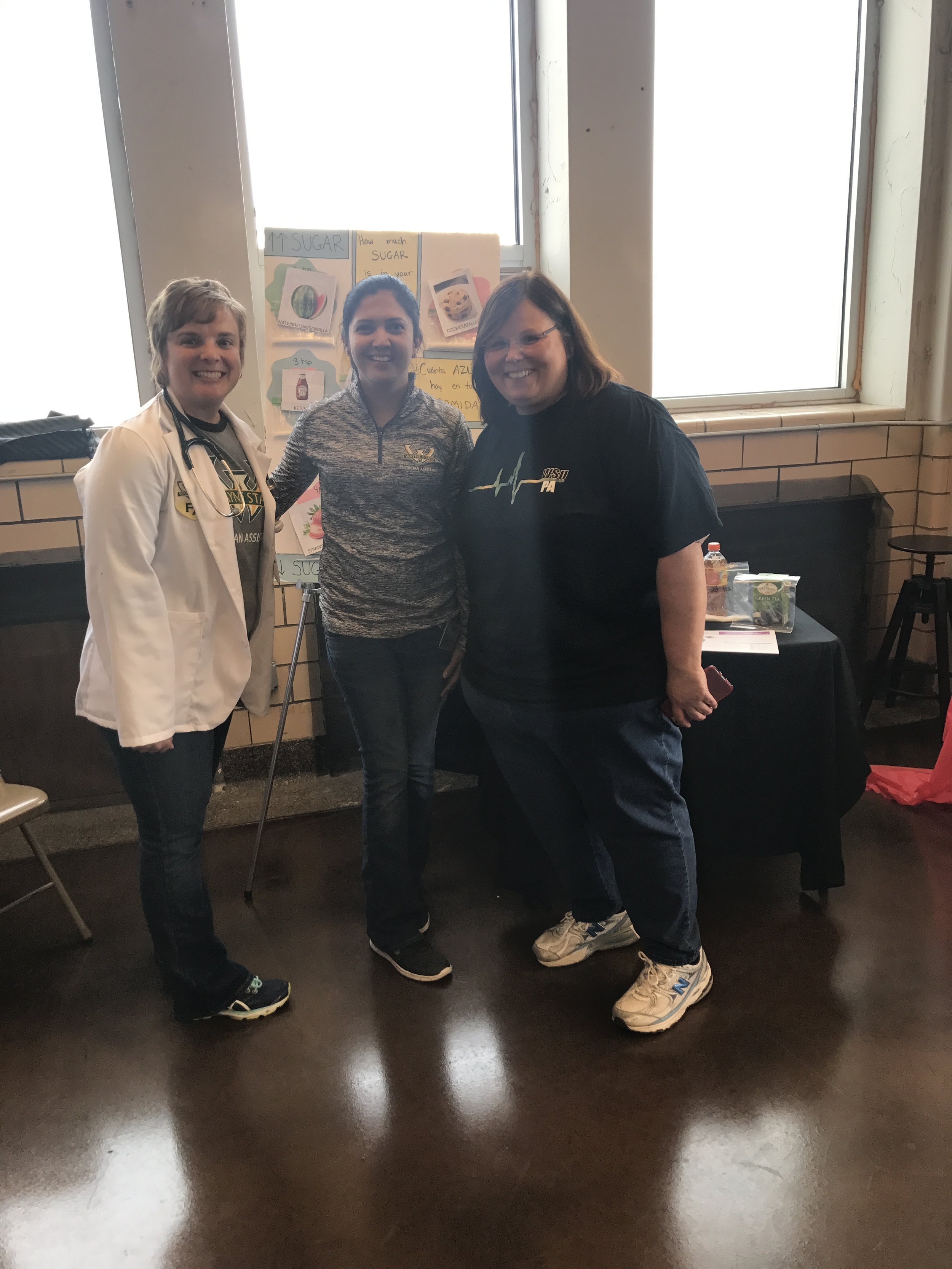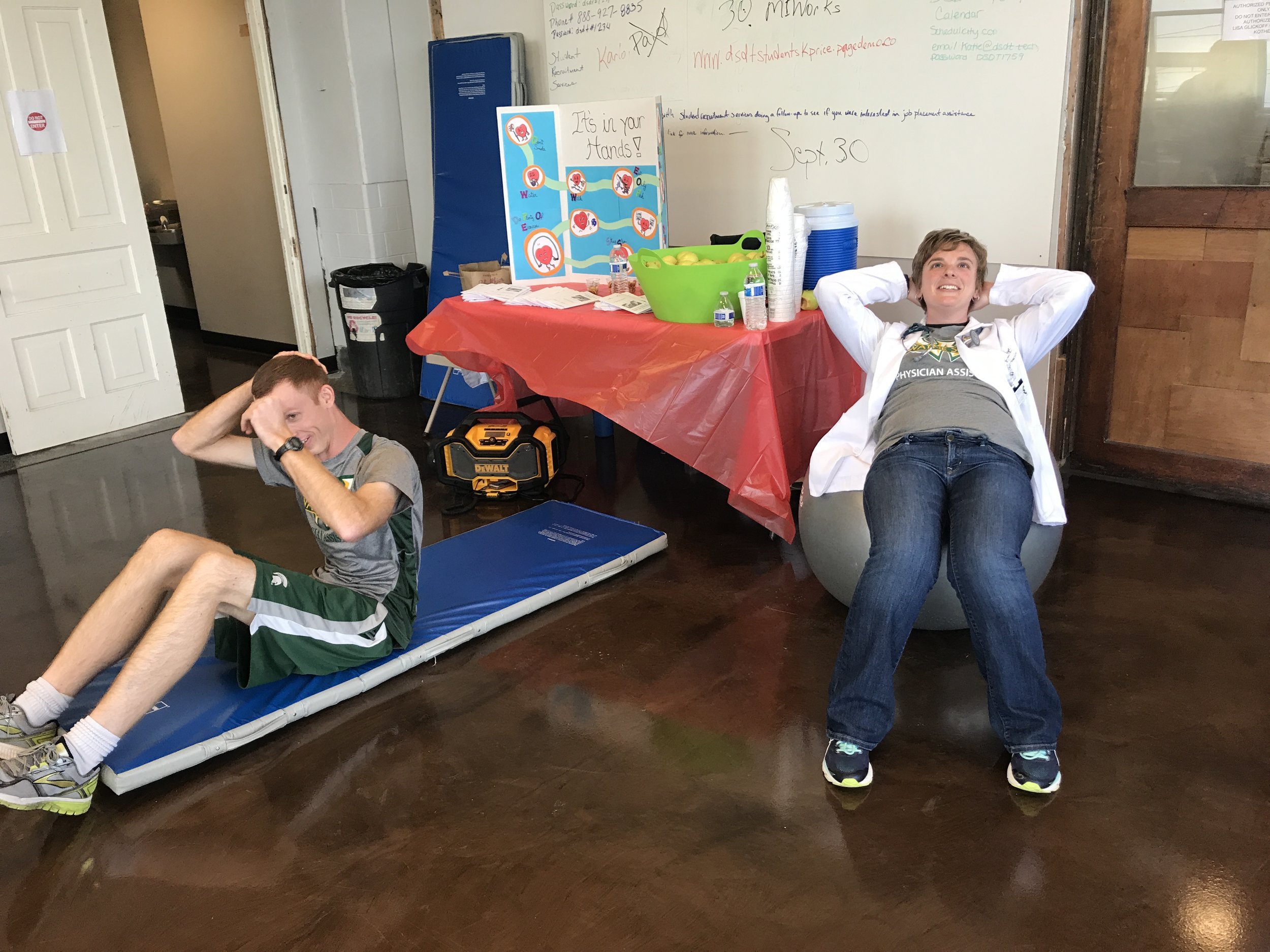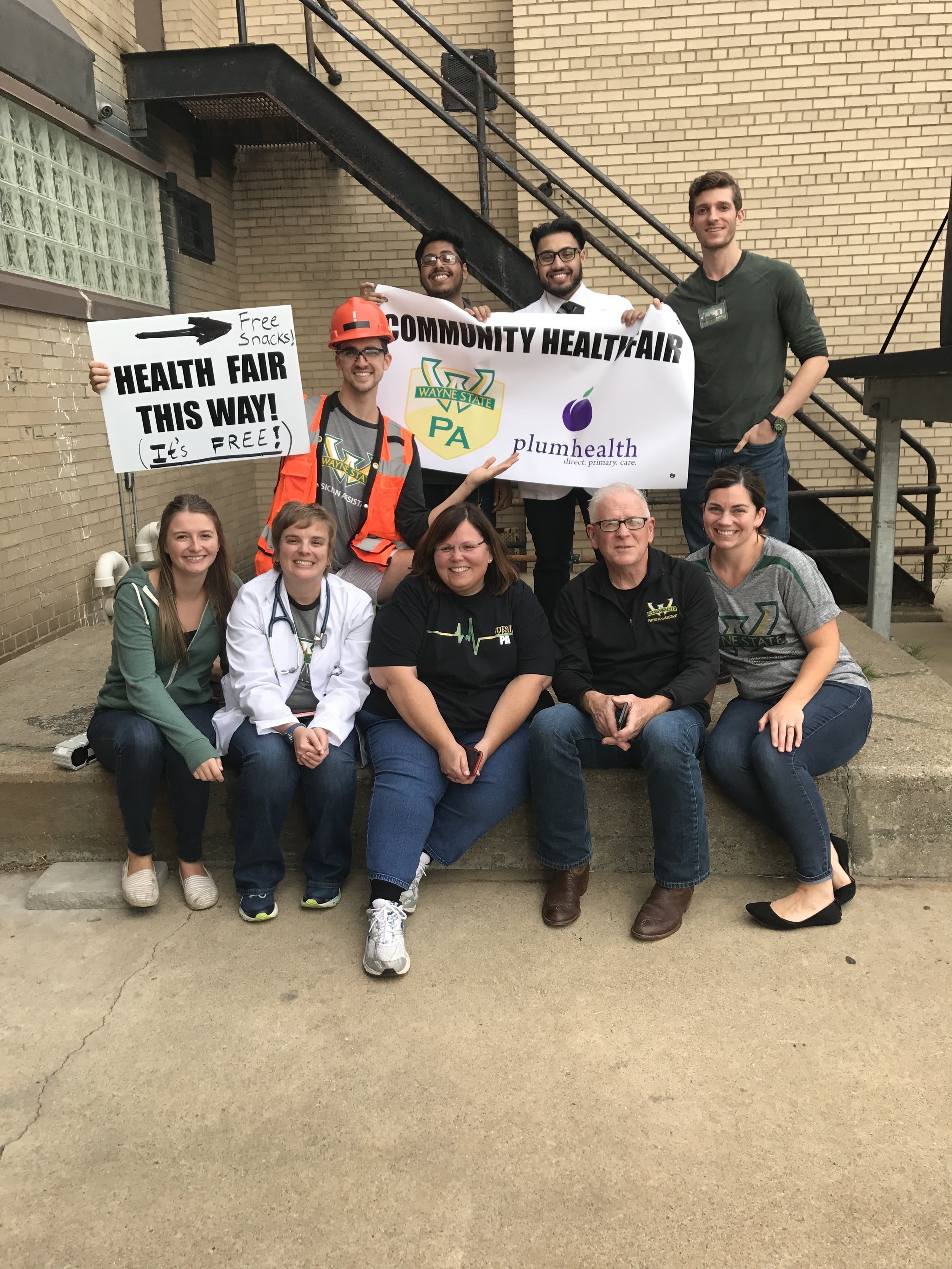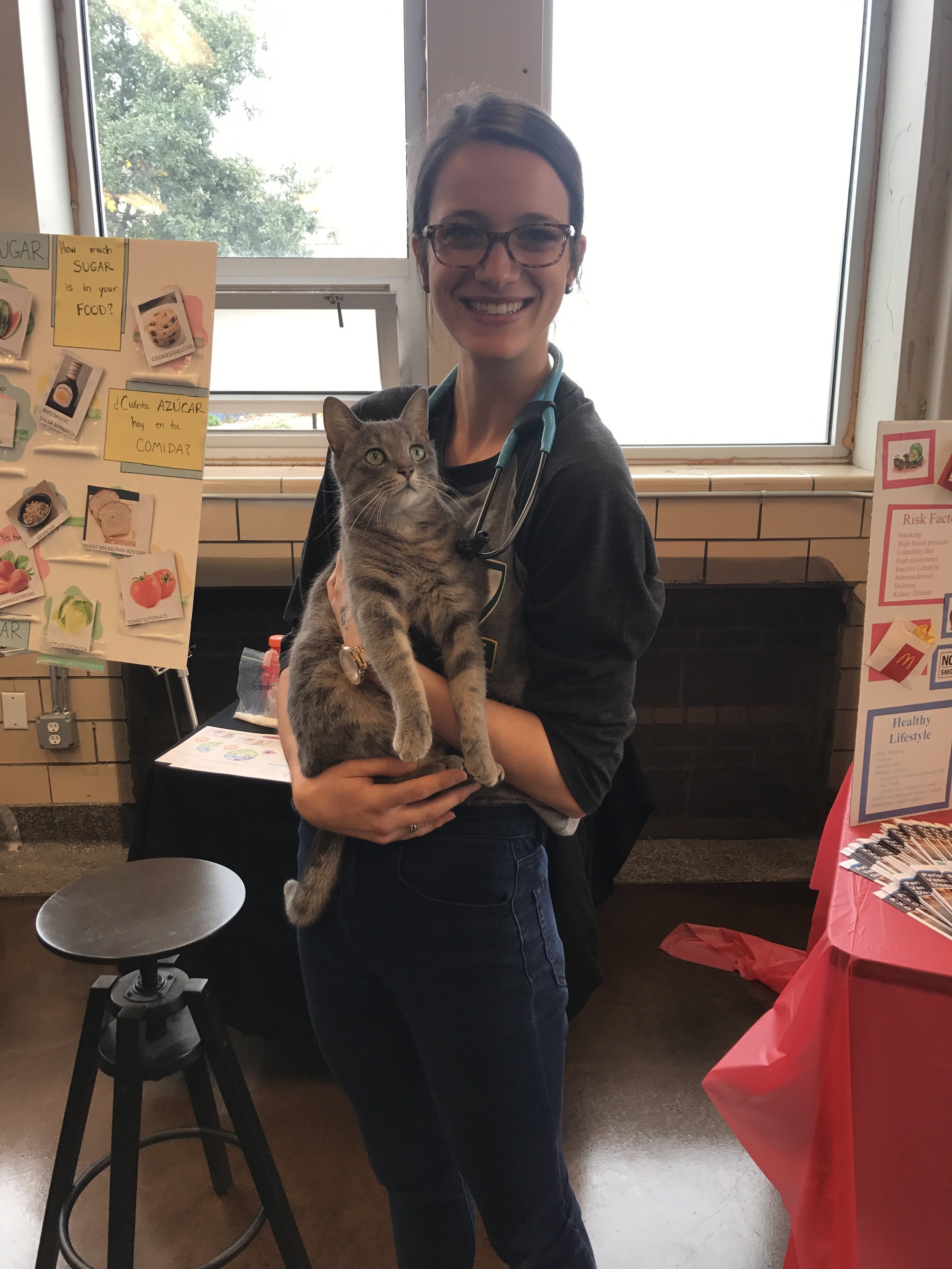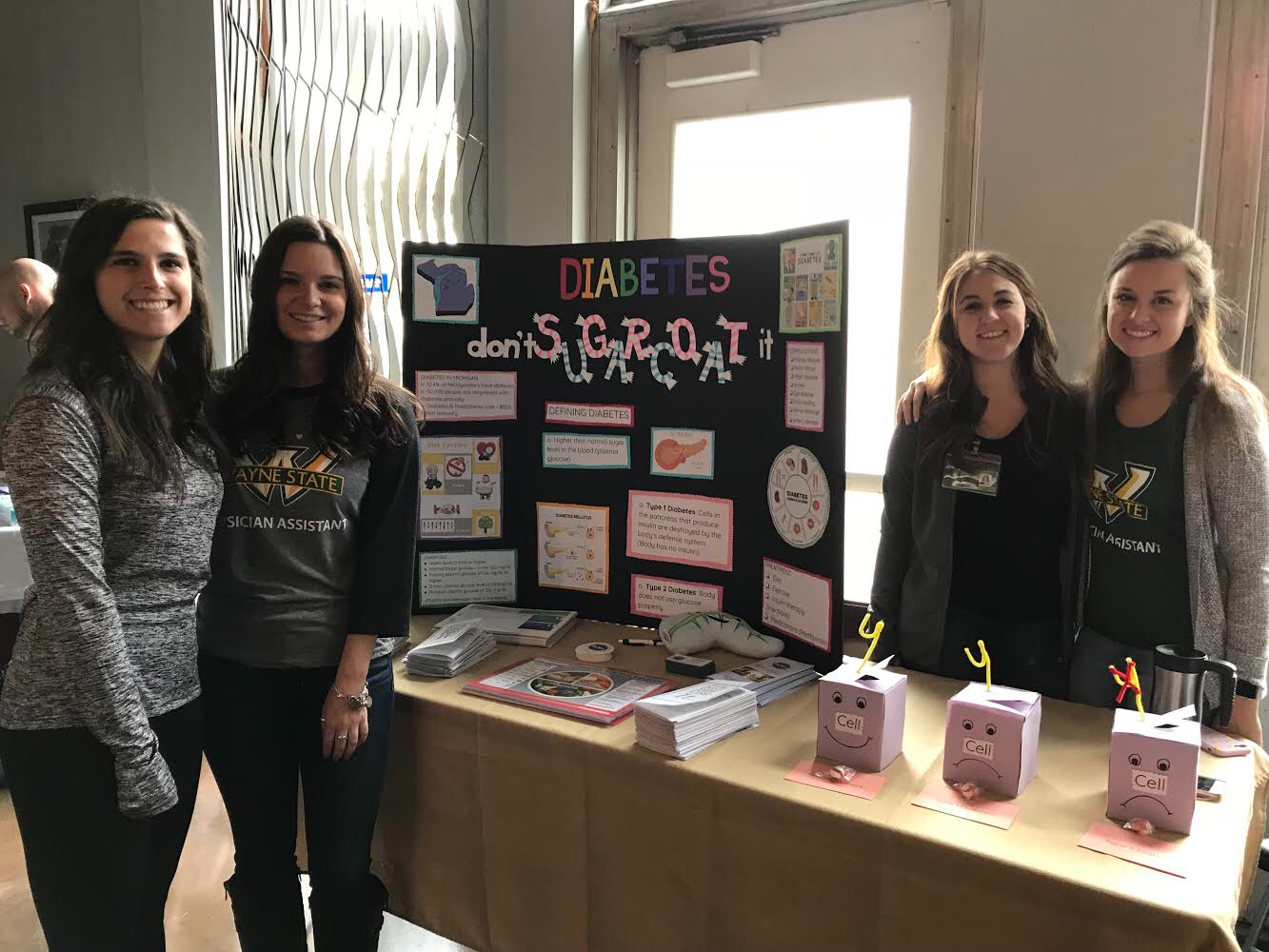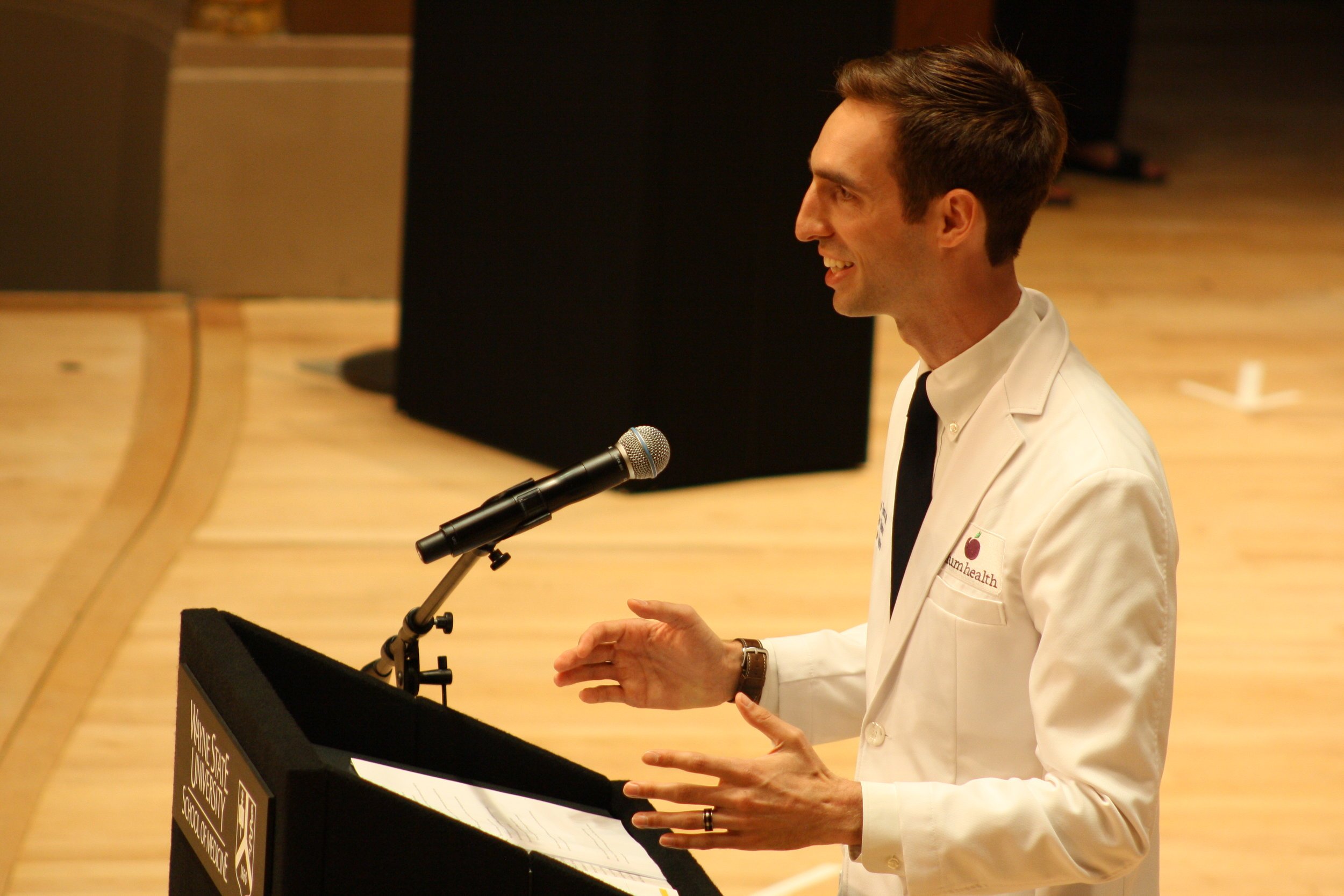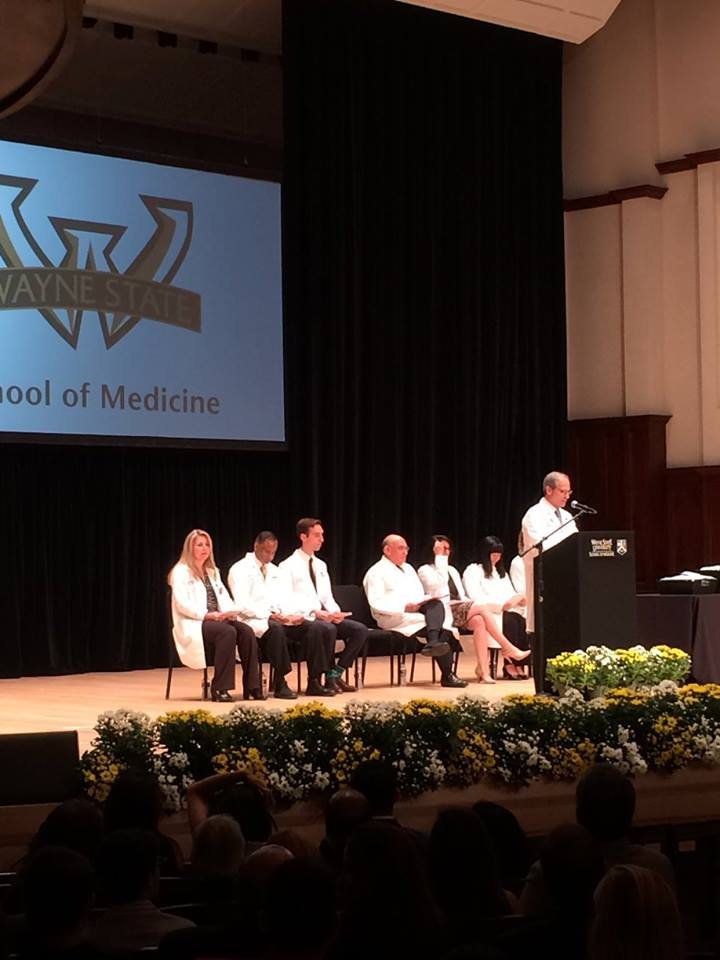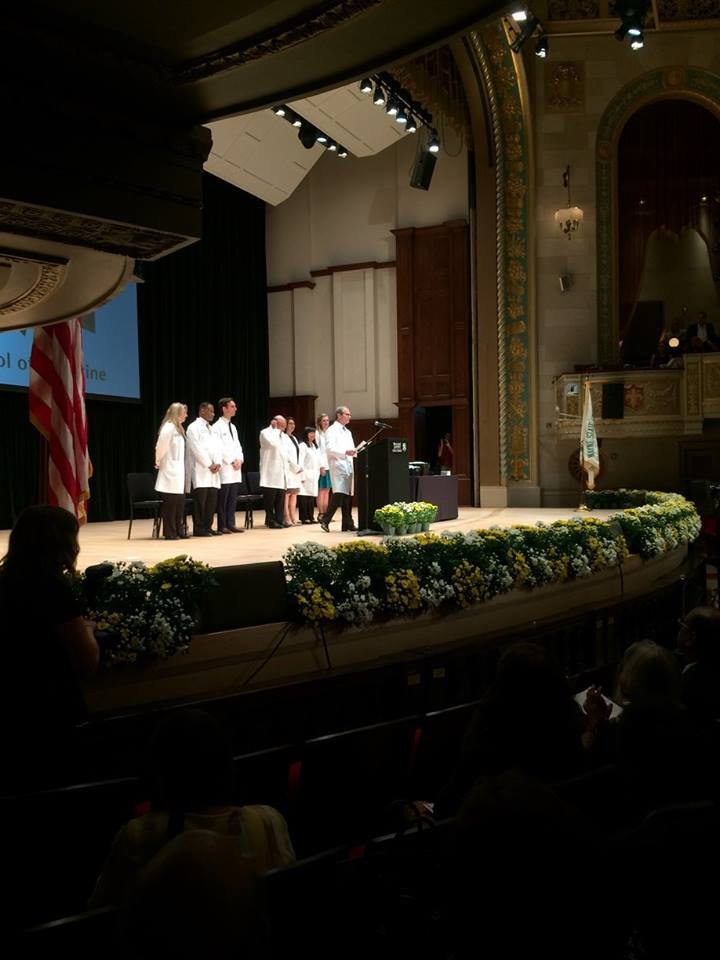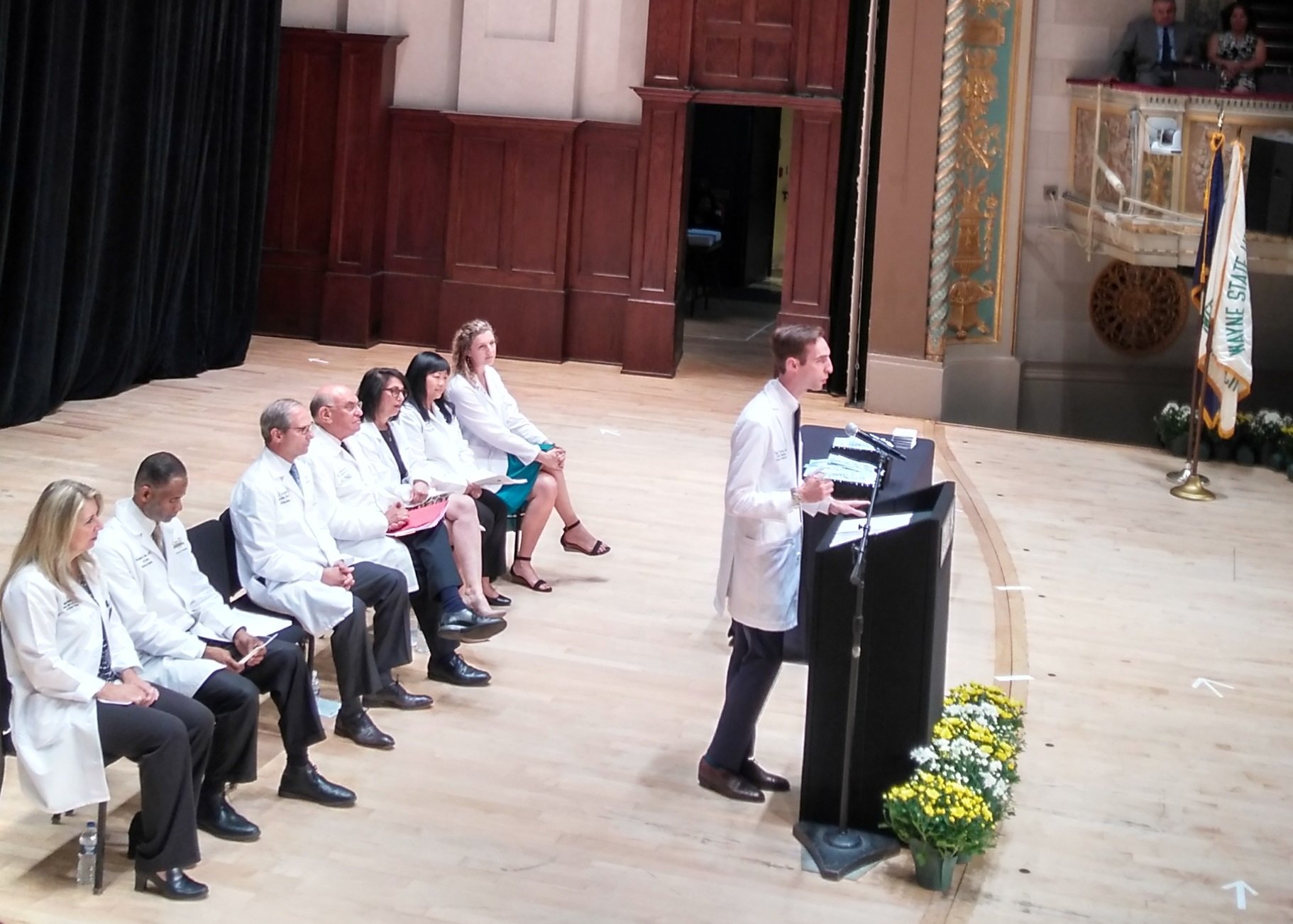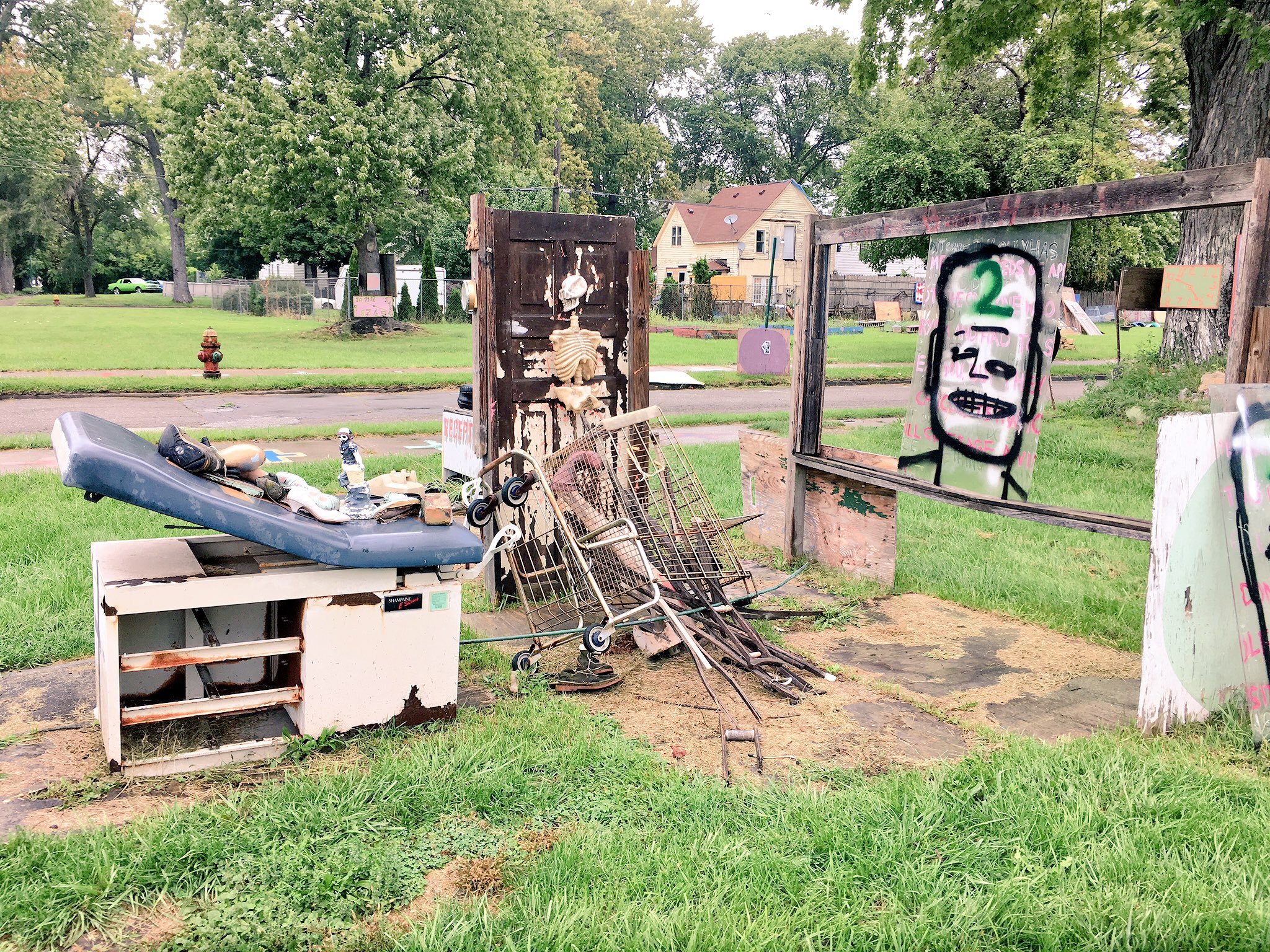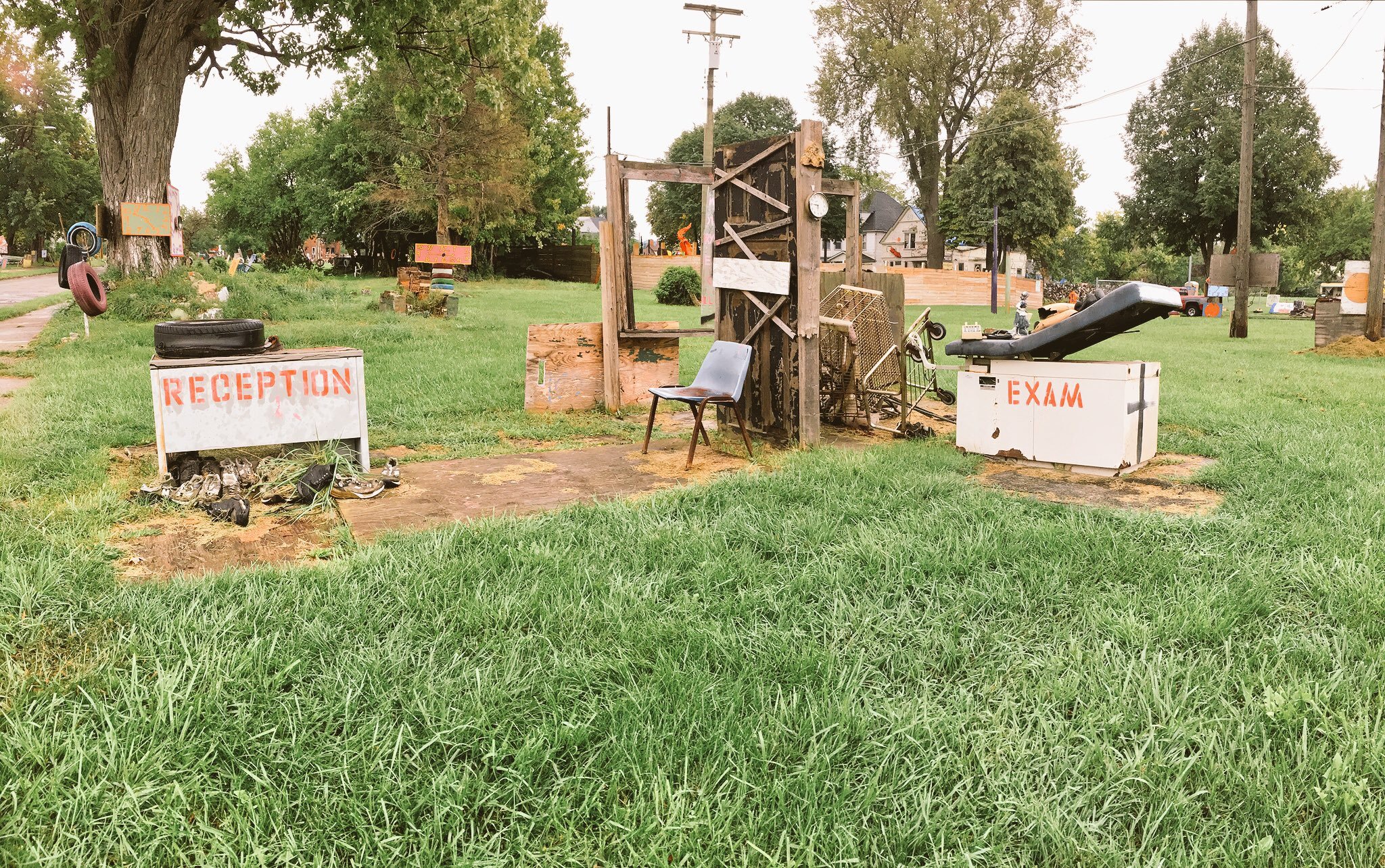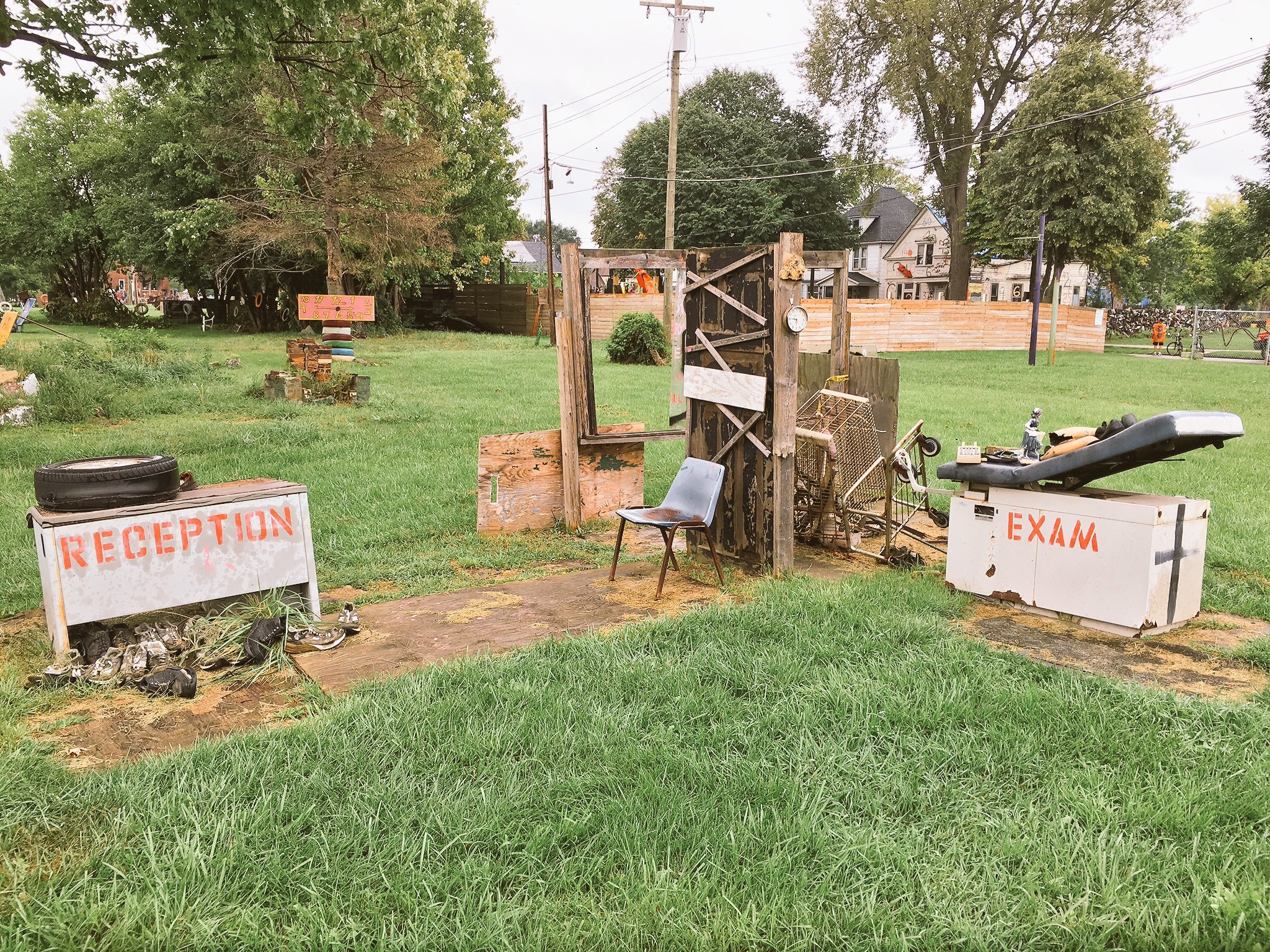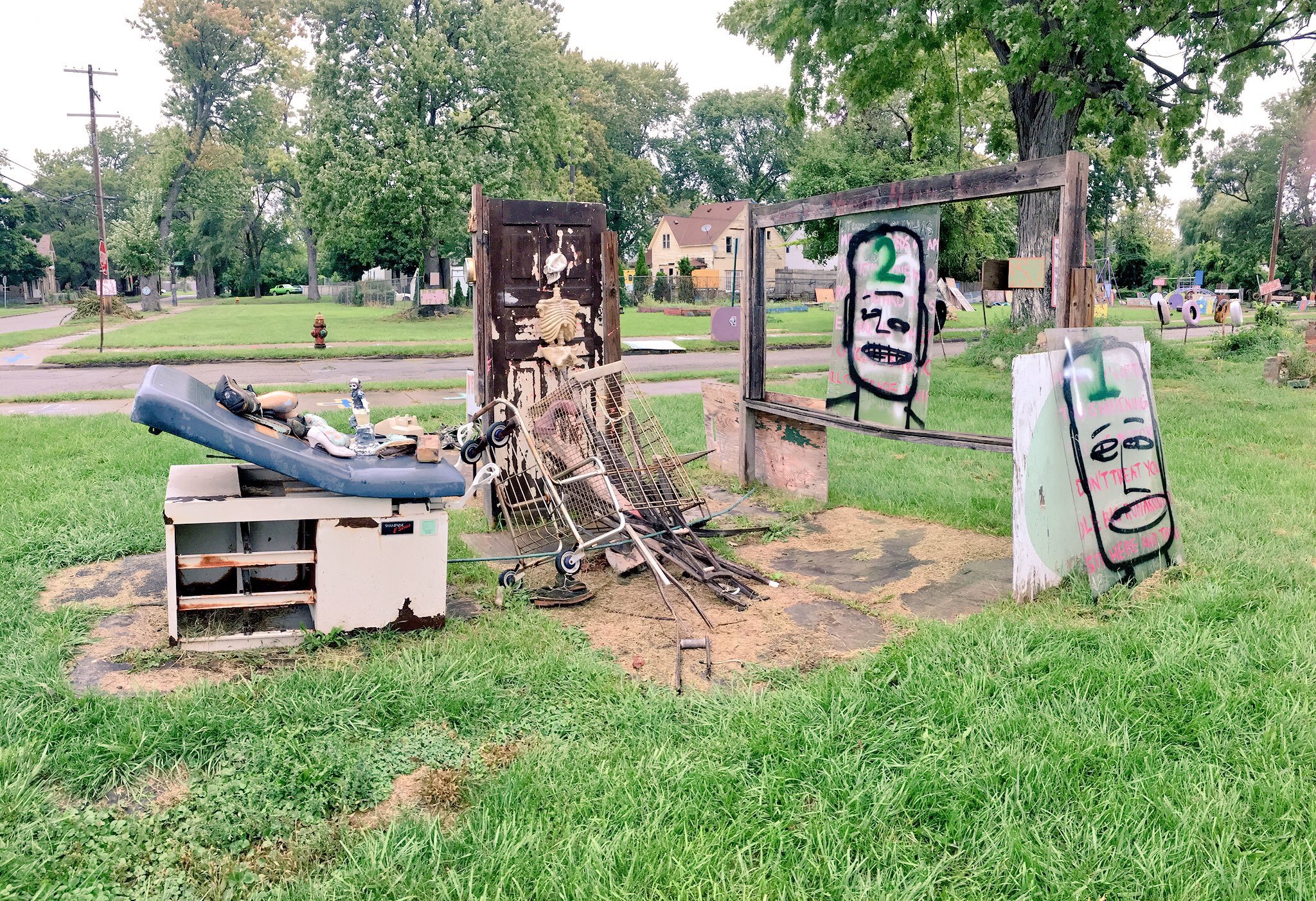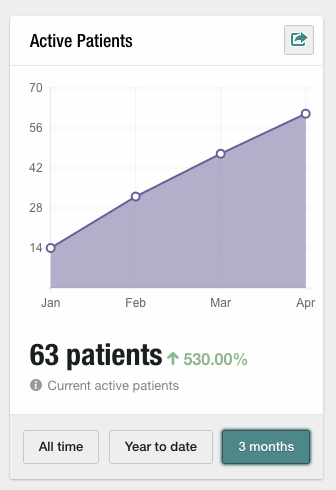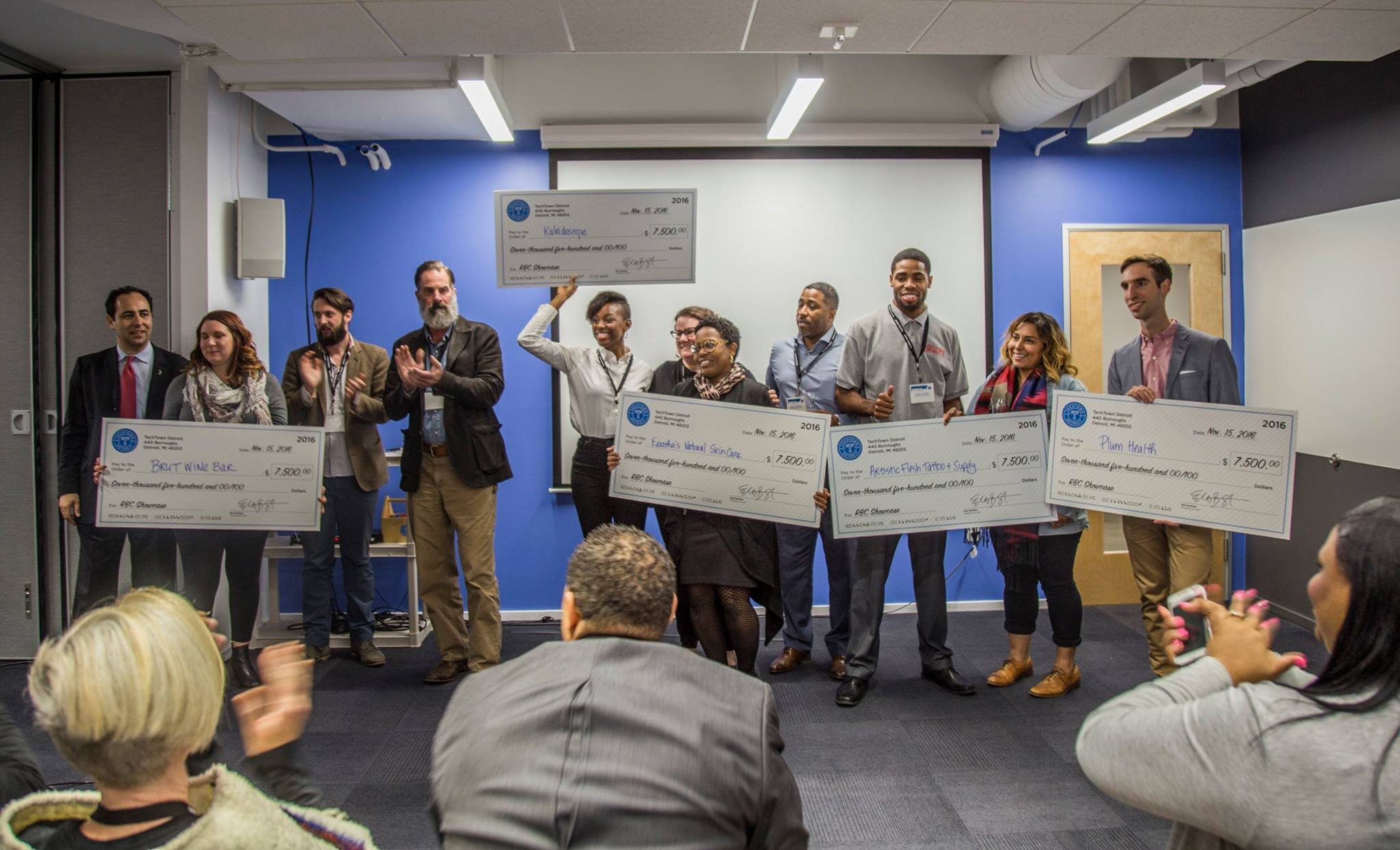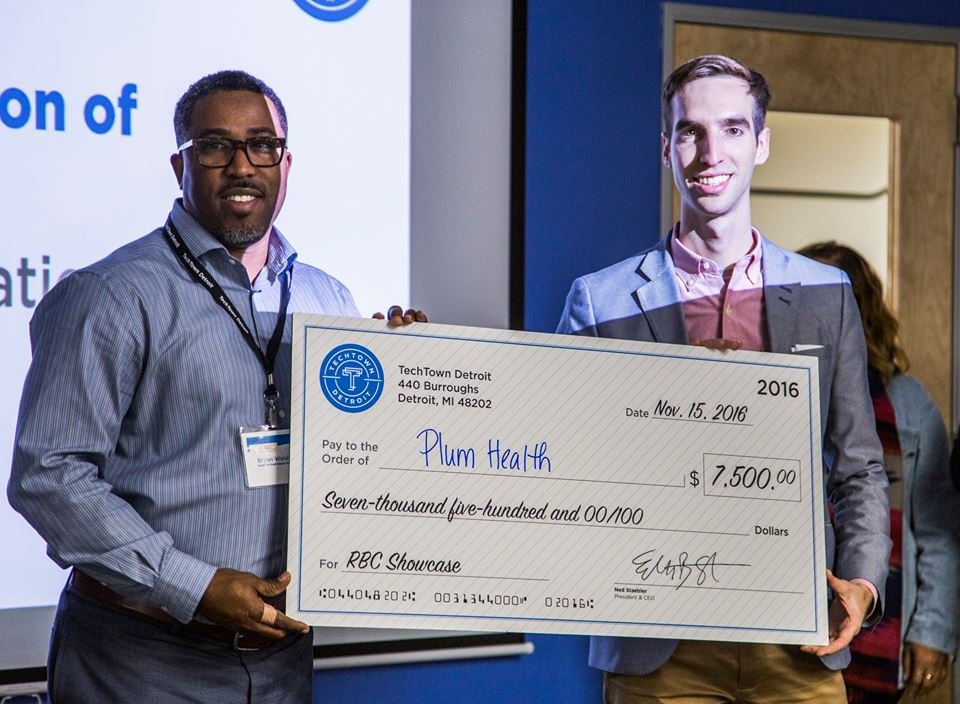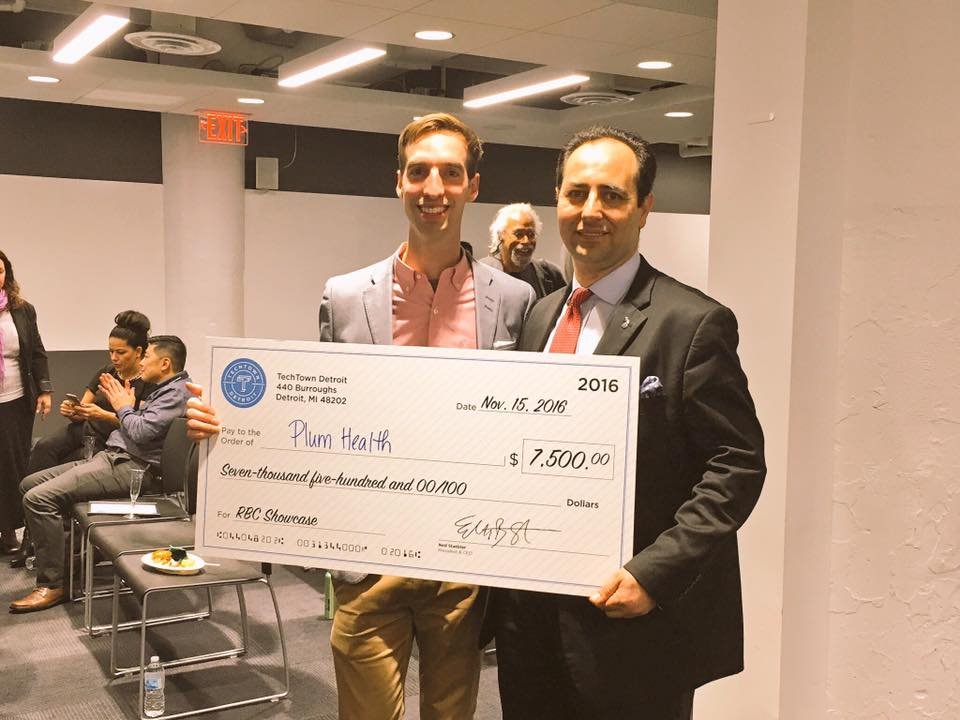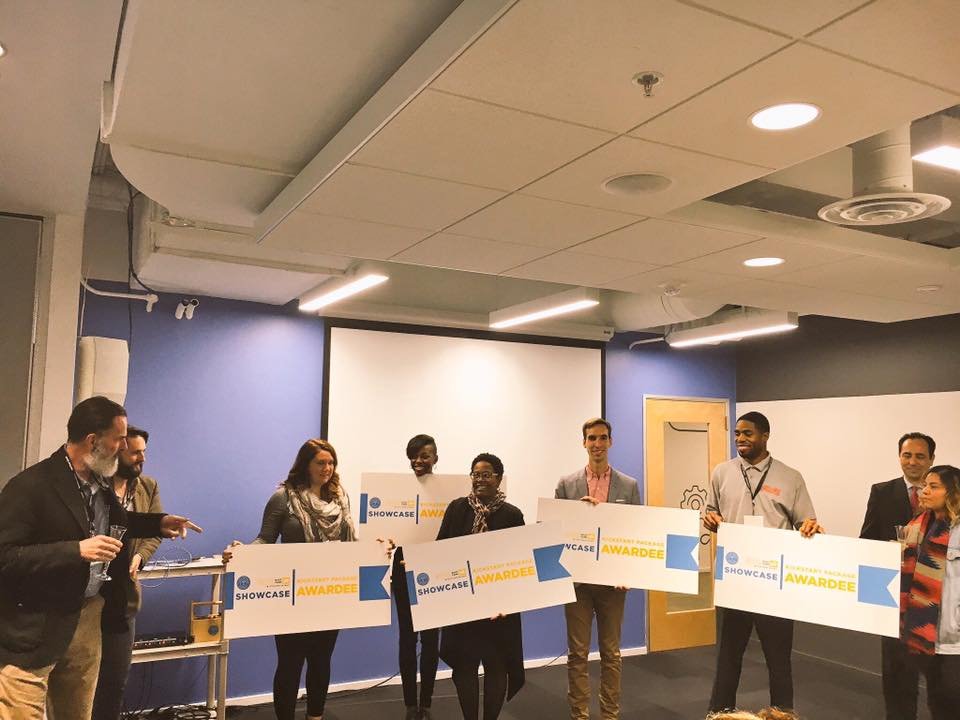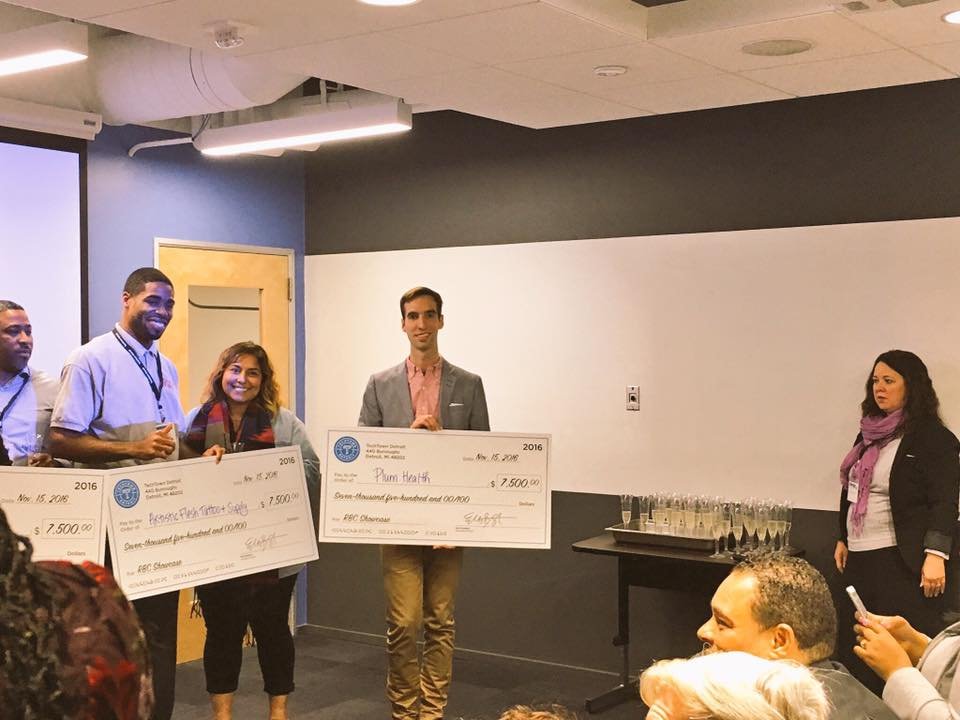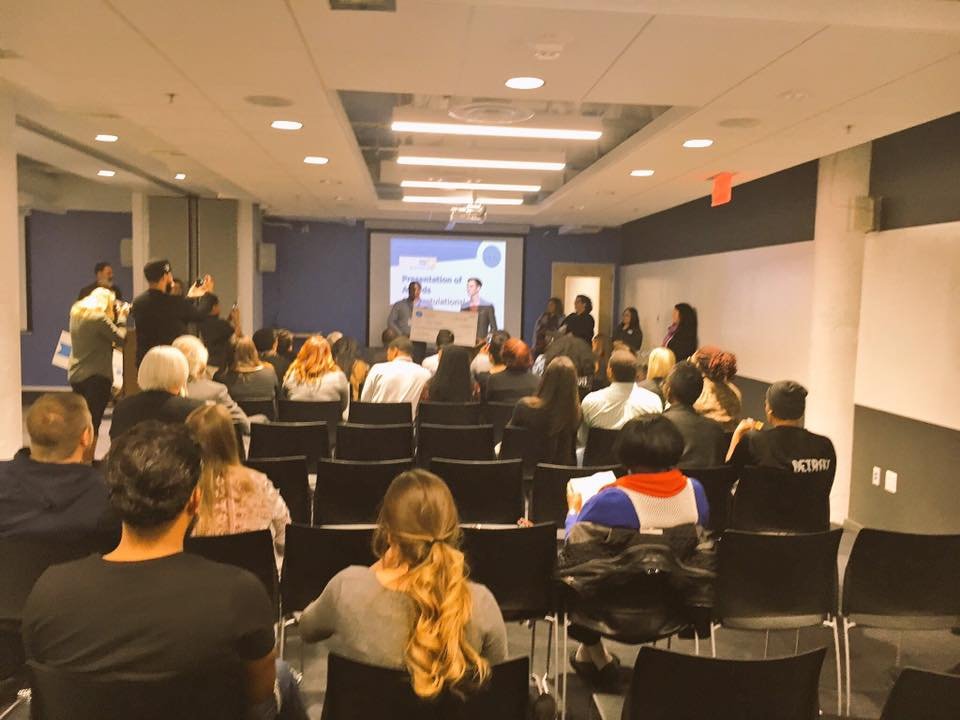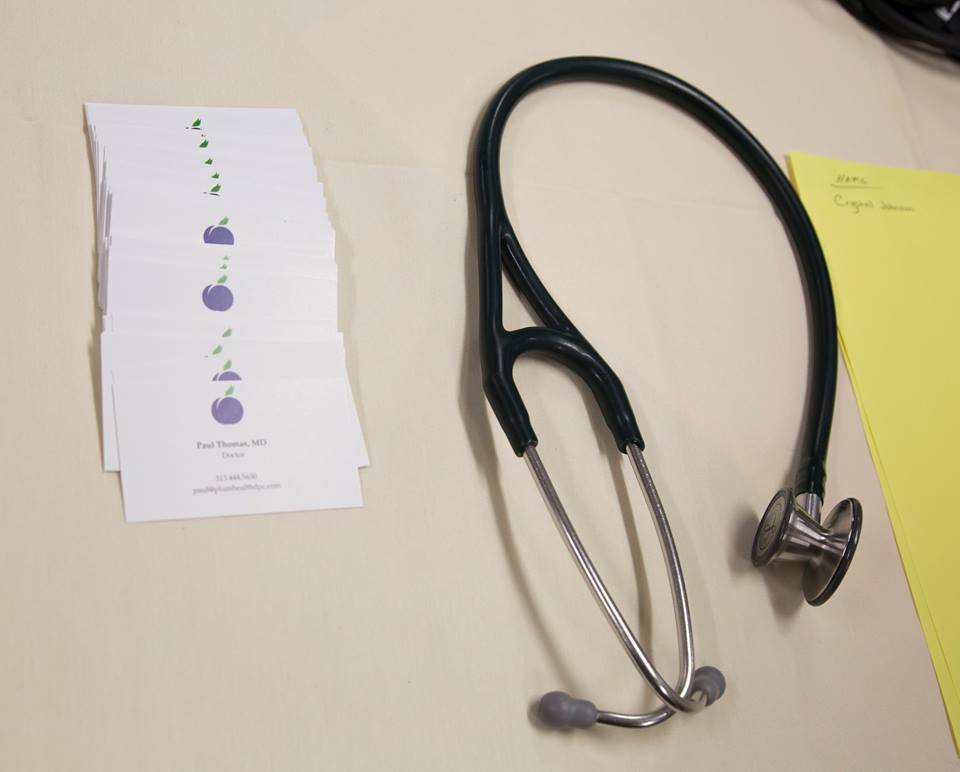Plum Health Blog
Three Excellent Family Physicians in Detroit Michigan Accepting New Patients
Detroit Primary Care Doctors Accepting New Patients
Paul Thomas MD, Raquel Orlich DO, and Leslie Rabaut DO are family medicine doctors accepting new patients in Detroit, Michigan. Their practice is called Plum Health and they see patients using a membership model for health care. Patients pay a low monthly fee to be a part of Plum Health, and with that membership, receive excellent primary care services.
Patients can come into the office whenever they want to be seen - we guarantee a same-day or next-day appointment for our Plum Health members. We also offer easy communication, with phone calls, text message, and email access to the doctors.
To see what all the buzz is about, you can enroll yourself, your family, or your small business into the Plum Health service via this link.
Thanks for reading and have a wonderful week!
The Doctors at Plum Health DPC are Raquel Orlich DO, Paul Thomas MD, and Leslie Rabaut DO. They are all board certified family medicine physicians and they are all accepting new patients.
Connect with Dr. Paul Thomas on LinkedIn
If you’d like to connect with Dr. Paul Thomas on LinkedIn, follow this link:
Price Gouging on Your Lab Work - How to Prevent It From Happening to You
Why Are Lab Prices So High?
It’s no surprise that people get ripped off on their lab work. Patients and their families have no idea of the prices of the lab work that they’re having done. Doctors don’t really know either. Next time you get your blood drawn, ask your doctor what it will cost - chances are, they won’t know, or they may say “it will depend on your insurance coverage.”
That’s another issue with the high cost of labs. Hospitals can set prices at whatever level they want for their labs, and then insured patients will get a discount for having an insurance plan, but uninsured patients will be unsheltered from these high costs.
This recently happened to one of our patients - they went to a health care facility and requested labs, and they were charged about $494.72 for some basic labs.
$494.72 was charged to our patient for basic labs, consisting of a comprehensive metabolic panel, complete blood count, thyroid stimulating hormone, a lipid panel, and a hemoglobin a1c, which is a test for diabetes.
In contrast, if that patient had the labs done in our office at Plum Health DPC, their total cost would have been $27.47, a savings of about 94%.
$27.47 was charged to our patient for basic labs, consisting of a comprehensive metabolic panel, complete blood count, thyroid stimulating hormone, a lipid panel, and a hemoglobin a1c, which is a test for diabetes.
How Can You Reduce the Cost of Your Lab Work?
Imagine if you could save 50 to 90% on your primary health care costs?
Rather than spending $500 for labs, you could spend $30 for labs. What would you do with that extra $470?
Rather than spending $3,000 for a knee MRI, you could spend $300 for that same test. What would you do with that extra $2,700?
At Plum Health, our mission is to deliver affordable, accessible healthcare services in Detroit and beyond. So, we’re always looking at ways to save our patients money on health care costs - it’s just what we do.
In short, if you’re looking to save 50 to 90% on your lab workin Detroit or Metro Detroit, reach out to us at Plum Health DPC. If you’re living in another area of the country, look up a local direct primary care doctor near you!
Thanks for reading, and have a wonderful day,
-Dr. Paul Thomas with Plum Health DPC
If you’d like to have this sort of direct primary care service and knowledge that you’re getting the best prices on your medical care, you can sign up here.
Virtual Walk with the Doctor on Detroit's Beautiful Belle Isle
Virtual Walk with the Doctor in Detroit
This week, I'm hosting a virtual walk with the doctor. We're headed out into beautiful Belle Isle park in the middle of the Detroit River, walking through one of my favorite trails and seeing wildlife along the way.
Exploring Beautiful Belle Isle with Dr. Paul Thomas
Detroit's Belle Isle was designed in the late 1800s by Frederick Law Olmstead, who also designed Central Park in New York City, Mount Royal Park in Quebec, and the Emerald Necklace in Boston. The wooded areas were a central feature of his design, so it's fitting that we're able to walk through one of those wooded areas.
As you spend time on Belle Isle, you'll see a broad array of wildlife. There are groundhogs (aka chuck hogs or whistle pigs), chipmunks, squirrels, eagles, herons, Canadian geese, woodcocks (aka timberdoodles) ducks, frogs, woodpeckers, blue jays, hawks, and many more. During our walk today, we saw several blue jays, ducks, and frogs.
If you want to explore Belle Isle outside of the wooded areas and wildlife areas, there are several attractions. These include the Belle Isle Aquarium, Coy Fish Pond, the Belle Isle Conservatory, the Belle Isle Beach, and many others - the Casino, Detroit Boat Club, Detroit Yacht Club, Dossin Great Lake Museum, Nancy Brown Peace Carillon Tower, Belle Isle Golf Range, Livingstone Memorial Lighthouse, etc...
One exciting new development on the island is the new and ongoing construction of the Oudolf Garden - Piet Oudolf is best known for his work with the High Line in New York and Lurie Garden in Chicago. It's really exciting to have this type of investment into the island, and this new garden will be situated at the base of the Nancy Brown Peace Carillon Tower.
Why 30 Minutes of Daily Exercise is Important for Long-Term Health
My goal with this is to provide some education and entertainment during these trying times of Covid 19, quarantine, political uncertainty, and the stress of daily life. Take a few moments to enjoy this video and immerse yourself in a calming environment.
Perhaps you'll watch this video while on your treadmill, or perhaps this video will inspire you to check out your nearest park and to hike a trail close to your home. Importantly, the Department of Health and Human Services recommends the following activity levels for adults:
For substantial health benefits, adults should do at least 150 minutes (2 hours and 30 minutes) to 300 minutes (5 hours) a week of moderate-intensity aerobic physical activity. Preferably, aerobic activity should be spread throughout the week.
Additional health benefits are gained by engaging in physical activity beyond the equivalent of 300 minutes (5 hours) of moderate-intensity physical activity a week.
Adults should also do muscle-strengthening twice weekly and this has added health benefits
I bring this up because I’m a family doctor and because the leading cause of death in the United States is heart disease. From the CDC:
Heart disease is the leading cause of death for men, women, and people of most racial and ethnic groups in the United States. One person dies every 36 seconds in the United States from cardiovascular disease. About 655,000 Americans die from heart disease each year—that's 1 in every 4 deaths.
The best way to combat heart disease is with regular exercise, a health diet, and no smoking cigarettes and limited alcohol consumption.
Thanks for reading and watching and I hope this video inspires you to strive for your health goals and to get outside for a walk this week!
-Dr. Paul Thomas with Plum Health DPC in Detroit, Michigan
Warning: Dog Bites Can Be Painful and Costly
Dog bites can be painful and costly, but it doesn’t have to be that way. We go above and beyond for our patients to try to prevent any unnecessary emergency department visits. We can treat dog bites, cuts, asthma attacks, and several other urgent care-type concerns in our office. This goes a long way for our patients, giving them the assurance that their doctor is available to them and protects their pocket books from over charges at the hospital.
Thanks for reading and have a wonderful day - Dr. Paul Thomas with Plum Health DPC
Dog Bite Laceration on lower lip before
Dog Bite Laceration on lower lip, after 3 sutures at Plum Health DPC in Detroit Michigan
Dr. Paul Thomas' Statement on George Floyd
This week has been a tumultuous week for our communities and our country. I’m proud to be an ally to those who face racial injustice and race-based discrimination and violence.
The vast majority of people were supportive of the post, but there were some negative comments. One person on Facebook said: “This was a terrible event. Likewise, Dr Thomas, there is no professional reason for you to comment on this.”
In response, I said “I respectfully disagree. I serve a diverse group of patients, some of whom have been exposed to trauma that can negatively affect their health outcomes. By communicating my understanding of these realities, I aim to help others and support those who've been affected by traumatic events like this. https://pubmed.ncbi.nlm.nih.gov/29019632/”
Thanks for reading,
-Dr. Paul Thomas
Taking Care of People with Auto-Immune Conditions in Detroit
Auto-immune conditions can be very difficult and expensive to manage. We recently had a patient present with swollen fingers and painful joints going on for 6 weeks. It was disabling for him and he was having a hard time doing the work he needed to do at home and at work. Worst of all, he was having a hard time playing/being active with his grand kids.
We were able to complete a work up of his condition for about $100 in terms of labs, and about $50 in terms of x-rays. He pays our monthly membership and is able to have as many appointments as he needs in our office without co-pays.
After collecting the labs and x-rays, and after thoughtful deliberation, we came up with a diagnosis of Rheumatoid Arthritis. Rheumatoid Arthritis or RA is an autoimmune disease in which the body's immune system – which normally protects its health by attacking foreign substances like bacteria and viruses – mistakenly attacks the joints. This causes joint swelling and joint pain, as seen in our patient.
Once we had the right diagnosis, we were then able to start him on Methotrexate, a medication to manage his Rheumatoid Arthritis. The medication costs $4.08/week or about $16.32/month, which is affordable for our patient.
Best of all, the medication works really well for our patient and he can now do the work that he needs to do at work and at home, without the considerable joint pain that he initially experienced. Above all, he has a better quality of life, because he can now play with his grand kids and be the grandpa he wants to be.
I love taking care of people - people of all ages and stages, with diverse backgrounds and conditions. Thanks for reading and have a great day.
- Dr. Paul Thomas with Plum Health DPC in Detroit Michigan
Health Fair with the Wayne State Physicians Assistants
Over the past 6 months I've been hosting and teaching Physician Assistant students from Wayne State University at the Plum Health office. I've also had a few residents rotate through and a few medical students visit the clinic, some from Wayne State and some from University of Michigan.
As Plum Health is the only Direct Primary Care practice in Detroit and Wayne County, and only one of less than ten in the State of Michigan, I find that we attract PA students, medical students, residents, doctors and allied health professionals who are thinking differently about health care and it's delivery, especially in the context of health equity and health disparities.
Anyways, I've loved having these students rotate through Plum Health! They bring a unique perspective, build genuine relationships with our members, and create an atmosphere of teaching and learning in the practice. This last point is important because I practice evidence-based medicine, and having a student helps to keep me up-to-date on the latest recommendations for evidence-based practice.
So last weekend, we were able to host a health fair at the Plum Health office. "We" being myself and the Physician Assistant students at Wayne State. Their energy was boundless and they put a great deal of time and effort in creating fun health-focused stations that taught participants about being healthier.
All in all, it was a successful day! We reached out to new people in the community, and gave away free medical care. We caught a case of diabetes that was unknown prior to the fair and helped folks gauge their blood pressure, blood sugar, and cholesterol levels (HDL, LDL, Total Cholesterol and Lipid Panel).
Below are photos from the event! Thanks for reading, and have a great day!
- Dr. Paul Thomas with Plum Health DPC in Detroit, Michigan
Starting a Direct Primary Care Practice in Detroit: What Inspired Me
I initially discovered direct primary care while on a road trip in November 2012. I was driving back to Detroit from a residency position interview at the University of Minnesota. I believe it was a libertarian-minded podcast featuring an interview with Dr. Josh Umbehr, discussing his startup in Wichita, Kansas, called Atlas MD.
It was refreshing to hear a Family Medicine doctor speaking so passionately about saving people money, delivering better care, and practicing in a unique way. The message resonated with me, but at that time I was pursuing a faculty position at a residency program because I enjoyed teaching so much. Suffice it to say that I filed this “Direct Primary Care” concept in the back of my mind.
Between my second and third years of residency, I went to the Michigan Academy of Family Physicians (MAFP) annual meeting in Traverse City. It was July 2015. There I met Dr. Clint Flanagan of Nextera Healthcare in Denver, Colorado. He spoke unequivocally about the value of being a primary care doctor and the tremendous value that we provide for our patients. His passion for the profession also came through in a way that I hadn’t experienced before.
These two leaders in the field served as a contrast to the typically burnt out and grumbling physician that I had met thus far in training. Even the best doctors grumbled about paperwork, prior authorizations, late patients, packed schedules, and all of the other difficult parts of being a primary care doctor.
At that point, I knew that I would pursue an alternative practice model. It only made sense – less-than-fulfilled physicians practicing in a less-than-ideal system surrounded me and I knew that life could be better on the other side. Additionally, I always had this inner drive to deliver medicine in a more equitable and just system. Direct primary care seemed to align with my values as an individual and as a doctor, but I needed to dive deeper.
So, as an elective rotation, I drove out to Wichita and Denver, and spent a week learning from both Drs. Umbehr and Flanagan. I kicked the tires, took copious notes, and tried to bring the best of their practices to my community in Detroit, Wayne County, and Southeast Michigan.
Now it's September 2017 - almost 5 years after I had initially heard of "Direct Primary Care". Now, I'm living DPC every day, taking care of people of all ages and stages in my clinic in Southwest Detroit. I'm even caring for people while on vacation - I helped about 10 of my patients while I was traveling abroad over the last week.
I am able to do this - to be the doctor that I was meant to be - because I am a Direct Primary Care doctor. This post is about inspiration, and what inspired me, and what continues to inspire me.
I am inspired by the fact that I can help people with real health care needs either in my office or over the phone, or via video chat or email. I am inspired by the fact that I am able to serve people who haven't seen a doctor in years, because we've lowered the cost barriers and therefore have made our service more accessible. I'm inspired by the fact that we can do so much good in such a small space.
I'm also inspired by the potential for Plum Health to grow, and to serve more people in our immediate community and across the region. I'm inspired by the happy patients that I get to work with everyday.
I've had great mentors along the way, specifically from the pioneers in the Direct Primary Care world, and I'm grateful for their help in getting me to a successful and sustainable DPC practice.
Thanks for reading this reflection, and have a wonderful day,
-Dr. Paul with Plum Health DPC
Dr. Paul Thomas of Plum Health DPC, in the Plum Health office!
Wayne State White Coat Ceremony Speech
The White Coat Ceremony, a New Tradition
The annual White Coat Ceremony is a relatively new tradition at medical schools across the country. In order to convey the virtues of the profession - compassion, altruism, duty, honor, respect, and responsibility - Dr. Arnold P. Gold created the event.
The first White Coat Ceremony was held at the Columbia University College of Physicians and Surgeons in New York in 1993. Dr. Gold believed that students should declare their commitment to the profession and the virtues therein at the beginning of their medical school journey, rather than at the end.
Now, 97% of medical schools have a White Coat Ceremony. The Ceremony gives a clear set of guidelines for these doctors-in-training to follow, and students are able to accept the obligations of the profession and commit to upholding the high standards that come with the title of "doctor".
The Declaration of Commitment
I solemnly pledge myself to consecrate my life to the service of humanity;
I will give to my teachers the respect and gratitude which is their due;
I will develop my skills with conscience and dignity;
The health of my patients and myself will be my first considerations;
I will respect those things that are confided in me;
I will maintain by all the means in my power the honour and the noble traditions of the medical profession;
My colleagues will be my comrades;
I will not permit considerations of religion, nationality, race, party politics, sexual orientation, or social standings to intervene between my duty, my peers, and my patients;
I will maintain the utmost respect for human life and I will not use my medical knowledge contrary to law;
I make these promises solemnly, freely and upon my honour.
My Speech
First of all, it was a tremendous honor to be selected as the Keynote Speaker for the Wayne State University School of Medicine White Coat Ceremony for the Class of 2021. When I received the phone call to be the speaker, I was nearly speechless and unsure of my ability to live up to the expectations that come with this role. I needed 24 hours to think on the offer.
After talking it over with my wife, I decided that this was something that I could do, and that I had a lot to say about the opportunity before these students and the medical profession in general.
When I was getting ready for medical school, I read several books. I was to be the first doctor in my family and I had a limited perspective on the medical field, i.e. I had no idea what I was getting myself into.
One of the authors that stuck with me was Atul Gawande, a surgeon and writer out of Boston. He wrote about the appealing aspects of a career in Medicine: autonomy, complexity, and a direct relationship between effort and reward.
However, something was missing. For me, that something is happiness. You see, doctors struggle with professional burnout, substance abuse, and suicide. We can speculate about why, but I think it's some combination of consistent perfection, frustrations with the monolithic systems within health care, and a heavy workload. I didn't want to get into the darker side of these concerns during the White Coat Ceremony, but they definitely influenced my speech.
Because of these concerns and these problems in the medical profession, I believe that we need to focus on creating a culture of happiness in the medical field. How can we train doctors to be happy? How can we create hospital systems, clinics, and insurance policies that foster physician wellness and happiness?
I don't know if there are great answers to these questions, but it's something that I have thought about deeply. For me, creating a happy practice involved creating a membership model for health care via Plum Health. That works for me, but during my speech, I encouraged these medical students to explore the profession fully and to find their own means of happiness within it.
I wish the very best to the WSU SOM Class of 2021. I know that these students will be a part of a generation of doctors that revolutionizes the way we deliver high-quality, compassionate health care. Without further ado, my speech:
Thanks for reading and for watching, and have a wonderful day,
- Paul Thomas, MD | Doctor with Plum Health in Detroit, Michigan
Wayne State University School of Medicine published an official write-up about the event on their webpage, here.
Hatch Detroit 2017 Application
Today, we submitted our application for Hatch Detroit 2017. Our company is called Plum Health DPC and we deliver affordable, accessible healthcare services in Detroit. We offer street level, neighborhood-based medicine in a city with very few primary care medical resources. There are roughly 50 - 100 primary care doctors in a city of 683,000 people, or roughly 1 doctor for every 6,000 - 12,000 Detroit residents.
This lack of access to primary care has a net negative effect on the city. Medical problems go untreated, worsening the burden of disease in the city for all maladies from diabetes, to high blood pressure, and cancer. Residents who cannot get in to see Detroit-based doctors must drive to the suburbs for services, causing inconvenience and costing the city in terms of tax revenue.
The Hatch Detroit 2017 grant is an opportunity for $50,000 in cash, along with support services ranging from legal to accounting, and beyond. With this $50,000, we would be able to hire a second doctor as soon as possible. This has an immediate benefit for the community in that we can get another doctor in Detroit to provide holistic and comprehensive primary care services.
We believe that primary care services are invaluable for a community, especially in a City like Detroit. The type and amount of value that we give to the community will exceed the initial investment from this grant competition, should we be so fortunate as to be considered for the prize.
In effect, this $50,000 yields immediate impact. First, the Detroit community gets a desperately-needed primary care doctor in a street-level, community-facing medical practice. More screening tests are ordered, more colon, lung, prostate and breast cancer cases are caught early. More diabetic and hypertensive patients have their blood sugar and blood pressures controlled, resulting in lower heart attack and stroke rates in the years ahead.
I know it's not super sexy! But it is vital for a functioning city and truly revitalized neighborhoods. In keeping with the Mayor's vision of 20 minute neighborhoods, having a neighborhood family medicine doctor can only serve to strengthen Detroit's neighborhoods and the future of Detroit in general.
Thank you for reading and for watching,
Dr. Paul Thomas with Plum Health in Detroit, Michigan
Plum Health July Update
The last 3 weeks have been a whirlwind! About 3 weeks ago, we were featured on Channel 4 news in Detroit, aka WDIV. Within the week, we had roughly 2,000 unique page views, 100 phone calls, 200 emails, and 30 - 35 new sign ups for our service. It was an overwhelmingly positive response.
Our focus has been to take really good care of the new folks who signed up while maintaining our excellent standard of care for the people already signed up for our service. Our focus is on quality, not quantity.
Also, I attended the AAFP's Direct Primary Care Summit in Washington DC and met with some legislators and legislative assistants to discuss DPC and what we do at Plum Health in Detroit. This was a great trip and a great chance to talk with legislators about what we do at Plum Health and in the Direct Primary Care model, but also talk with our DPC colleagues.
Furthermore, we continue to save our members significant amounts of money on their medications, labs and imaging. We had a person sign up who was charged $100 for 10 tablets of valacyclovir (Valatrex). This medication is used to treat genital herpes. At our clinic, it costs about $2.35 for 10 tablets because it costs $0.23/pill.
Thanks for reading and have a great day,
Dr. Paul Thomas with Plum Health DPC in Detroit, Michigan
Primary Care Clinic in Detroit
When I was a first year medical student, I worked with a group of my fellow medical students to build an outdoor medical clinic. We wanted to raise awareness about the lack of primary care services in Detroit, and we accomplished this by constructing an outdoor medical clinic.
Currently, there are roughly 50 - 100 primary care doctors in the City of Detroit. This equates to about 1 primary care doctor for every 6,000 - 12,000 residents, which is horribly underserved. In the future, I would like to see 1 primary care doctor in every single Detroit Neighborhood, from East English Village to Ford/Wyoming, from Old Redford to Lafayette Park.
Having community primary care doctors creates a tremendous amount of value for the surrounding neighborhood - that doctor becomes a go-to person for folks who need health care and even emotional support.
However, the current reality in Detroit is that folks either don't have access to a primary care doctor or are driving to the suburbs for their care. To illustrate that lack of primary care services, our group of medical students built an outdoor clinic as a part of the Heidelberg Project on Detroit's East Side or what you may call the McDougall Hunt Neighborhood. Of course, we had the approval of Tyree Guyton, who checked in on our work that day, and we also received some press from the Detroit Free Press and the Wooster Collective out of NYC.
It was a simple clinic, with a reception desk, a door frame, a door, an exam table, and some chairs. On the door, we wrote all of the barriers to accessing health care services in Detroit and in the Nation. This was in 2009, when the debate over the Affordable Care Act was raging.
I visit the location periodically, to see how it has changed over the years. The last time I visited the site was in September 2016 during the Tour de Troit, an annual bicycling event that takes riders around the city. Someone had added a skeleton and some body parts, and it looks like Tyree made his signature drawings of faces on our plexiglass wall.
Plum Health may be in its infancy, but I know that we are already filling a need in the community in terms of primary care services. We recently surpassed 100 members and continue to grow, adding new members each week. We've taken care of newborns, toddlers, teens, and adults, and have addressed conditions ranging from sore throats to cancer.
As I continue to serve in the community, I hope to live up to the ideals that I put forth in this work of public art, to be the kind of community doctor that addresses the lack of access to health care in Detroit. I will also work to inspire the next generation of Family Physicians to take the leap into private practice in a community-based setting.
Thanks for reading, and have a wonderful day,
Dr. Paul Thomas with Plum Health DPC
WeWork Creator Awards Detroit Application
Today, we submitted our application for the WeWork Creator Awards! I really enjoy submitting applications for contests like this, because it helps me to clarify our mission, vision and values. And it's an opportunity to learn and grow through outside feedback about our internal operations.
In the application, they ask: "What problem is your idea, business, or organization solving?" For us at Plum Health, it's all about providing high-quality Family Medicine services in the community. It ain't sexy and it ain't super exciting, but it's so darn necessary! Having excelling primary care services in your neighborhood saves costs and improves health outcomes.
As they put it in this linked article, "One primary care doctor per 10,000 people in the U.S. can decrease hospital admissions by 5.5 percent, emergency room visits by 11 percent and surgeries by 7 percent."
This point is salient in Detroit, where there is an epic primary care shortage. Currently, there are only 50 - 100 primary care doctors in the City of Detroit for 680,000 people. That's 1 doctor for every 6,000 - 12,000 people. I recently wrote an article about this in the Detroit News.
Historically, this has been a difficult issue to solve because practice location for doctors is often tied to reimbursement from the community. Primary care doctors have avoided Detroit because more than half of Detroiters are on Medicaid, which generates low reimbursements.
With Plum Health, we do not rely on government or third party payers of reimbursement. Instead, we bill patients directly: $10/month for children and $49 for young adults, which covers all doctor's visits, texts, phone calls, and emails.
Additionally, members also have access to wholesale medications, at-cost lab work, and at-cost imaging services. From January - May 2017, we have saved our members roughly $15,000 on their meds, labs, and imaging. We are here to provide a tremendous amount of value to our patients and our community.
Our ask for the WeWork Creator Awards: help us reach our goal of providing value for the community by supporting what we do at Plum Health DPC!
The WeWork application continued with the following question: "How do you, your business, or your organization interact with the community?" Put simply - we are imbedded within the community and provide ours services to community members.
At Plum Health DPC, we take care of folks of all ages, races, ethnicities, and orientations. We are practicing on the street level, open and accessible to the community. Our youngest member is 14 months old, our oldest is 63 years; some of our members earn less than $30,000 and cannot otherwise afford health care. These folks are often shut out of the traditional insurance system because they cannot afford the premiums.
In addition to serving our paying customers in the community, I regularly volunteers at Cass Community Social Services' Clinic in Cass Corridor and the Student Run Free Clinic at I-94 and Conner. Here, I'm able to deliver free care to the most vulnerable members of the community - typically the homeless and uninsured.
Finally, Plum Health is regularly at health fairs throughout Detroit, performing free health screenings for non-profit organizations and church groups.
The last major questioned asked in the application was about how we would use the money if we won: "If you were awarded a grant, what new benchmarks would you be able to reach?" We are doing pretty well at Plum Health, adding new members each month and growing at a sustainable pace. However, if we won the Creator Award, we would be able to grow more quickly and therefore serve more people in Detroit and beyond.
Specifically, A grant of $18,000 - $36,000 would allow us to lease a larger office space and hire a second doctor. In a city with such limited primary care options, hiring a second doctor to work in the city would make a substantial difference in the lives of the people in our community.
We've taken care of folks who earn less than $30,000 and we've seen people who haven't been to a doctor in years, living in fear of generating large medical bills, and living with the consequences of their worsening high blood pressure and diabetes. Without the grant, the goal of leasing a larger office space and hiring a doctor would be at 6 - 12 months. With the grant, these goals would be achieved in 3 - 6 months.
Thanks so much for reading more about what we do at Plum Health DPC, and if you're a member of the WeWork community, thanks for taking the time to read our application and this blog post!
Sincerely,
- Dr. Paul with Plum Health DPC.
Steady Growth in the First Quarter of 2017
Plum Health DPC is a Direct Primary Care practice in Detroit, Michigan. It is the only authentic Direct Primary Care practice in Detroit and Wayne County, and one of two authentic DPC practices in the State of Michigan.
When I started chasing the dream of Direct Primary Care in early/mid 2016, I wondered if this would be possible and/or sustainable. Could I really hope to spend an hour with each of my patients? Could I really operate a medical practice outside of the insurance-based system? Could I really be successful?
When I started making house calls in November and December, I experienced slow growth. I added only 10 people in those first two months. Part of the issue, in my mind, is that it's hard to visualize what I'm trying to accomplish. Unlimited visits? Wholesale medications? At-cost labs? It all seemed amorphous to those listening to my pitch.
Once I leased an office space (December 15th, 2016), the "idea" became more real for the people interested in signing up. Once inside the Plum Health DPC office, you can see the medications, the blood draw equipment, the scale, the otoscope/ophthalmoscope set, and the other accoutrements that make a doctor's office feel like a doctor's office.
Since that time and over the course of the last 3 months, we've experienced steady growth. My goal was to add about 20 new members each month, with a minimum of 15 and a maximum of 30 new members each month.
So far, we are on pace, meeting those targets each month. As our membership base has grown, I've noticed more of a "snowball" effect, where current members are beginning to refer friends and family to the practice! This has helped us remain sustainable.
Further, only 2 members have cancelled over the period of 5 months! Both instances were similar - young 20-somethings who signed up because they needed some help with an immediate issue. After a few months of membership, they were able to garner health insurance through an employer or another source, and couldn't justify both expenses because of a limited budget.
Finally, I am so grateful to the people who have given this Direct Primary Care practice model a shot - a huge thank you to our current patients/members who sustain the practice, leave us positive reviews, and spread the word to their family/friends/co-workers!
Sincerely,
- Dr. Paul with Plum Health
Plum Health DPC Featured in The HUB Detroit
This week, we were featured in an article by The HUB Detroit, a local publication that focuses on Detroit neighborhoods. From their mission statement, they emphatically state: "our focus is Detroit’s neighborhoods. TheHUB’s multimedia platforms were created to give Detroit city residents and supporters a dedicated voice and space to discuss the real issues surrounding viable city neighborhoods."
I am happy to be working in the neighborhoods in the City of Detroit, serving folks of diverse backgrounds via my clinic in Southwest Detroit. The article touched on this point by relating that I am embracing the neighborhood where I practice medicine. It's true - I spend a lot of time reaching out to folks in the community like small business organizations, small business owners, and non-profit groups like the Ford Resource and Engagement Center.
Our goal is to improve the health and wellness of not only individuals, but also the community and we achieve this by delivering affordable, accessible healthcare in our community.
I really appreciate the time that the editorial staff took to share the Plum Health story, and I'm excited for what the future holds for health in our City and our region.
Thanks for reading, and have a wonderful day,
- Dr. Paul with Plum Health
Plum Health at DNewTech Q&A
We were invited to pitch at DNewTech on Wednesday night, and after our pitch, we had 5 minutes to answer questions about Plum Health DPC. Here's the video of the event!
You can see the original Pitch Video here, and you can see our original blog post here.
One of the biggest barriers for people learning about our model is the difference between health care and health insurance. You need health insurance to protect you against the unknown or unforeseen: cancer, stroke, heart attacks and car accidents. Your health insurance should not cover your primary care services, because it introduces a middle man (or several middle men) between you and your doctor, driving up the price of those services.
Health care is what we deliver at Plum Health. As your primary care doctor, I'm not that expensive and you're really paying me for my time. This allows me to answer your phone calls, texts, and emails in a timely fashion. It also allows me to get you in for an appointment when you need it, rather than having you wait for weeks just to be seen.
Health care delivers the basics, like office visits, meds, labs, stitches when you cut yourself, and advice/counseling on lifestyle changes when you need it. Health insurance covers the unforeseen circumstances that are beyond our control.
An analogy is auto insurance. We all have auto insurance, but we almost never use it, unless we're in an accident or our car is stolen. However, we don't expect our auto insurance to pay for the routine maintenance of our vehicles, like oil changes, tire rotations, and gas at the pump. If we did require our auto insurers to pay for these things, it would drive up the prices and make these basic services a hassle. Could you imagine long lines at the pump, prior authorizations to drive to Chicago, and auto insurance that only covers the basic oil, not the Valvoline.
This would be an absurd way to take care of our cars. And I know that cars and people are different, but the way we've structured our health insurance coverage has caused very similar stress points to the imagined scenario above: long wait times to see your doctor, prior authorizations to get imaging studies like CT scans, and health insurance coverage that only covers some medications, but not others.
In Direct Primary Care, we get rid of all of these middle men to deliver excellent, affordable services without the hassle.
Thanks for reading and watching,
- Paul Thomas, MD
Plum Health at DNewTech
Plum Health was invited to pitch at the March 1st DNewTech event. We were one of four small businesses to pitch our idea at the DNewTech event, which brought together roughly 35 people from the small business community in Downtown Detroit. There were some great ideas shared, which are outlined below.
First to take the stage was Sidney Coleman, Co-founder of Aradie, A Technology And Design Company, which began in late 2016. They aim to tackle the social media echo chamber. This can cause some real problems, including a loss of empathy, misinformation, and a loss of constructive debate. Their solution is Pective, a collaborative information platform that can allow people to contribute different perspectives on a specific topic.
Second was Sean Carroll, the Co-founder of Enbiologics, which is Advancing Healthier, Intuitive Burn And Wound Care. Sean talked about his product, HoneyCure, which reduces healing time and drug use like oral antibiotics. Currently, it's approved for veterinary medicine, but they are working on approval for human medical uses.
Then, I was able to give our pitch for Plum Health, which is Delivering Affordable, Accessible Health Care Services in Detroit. Mostly, I focus on telling the story of the business and why it's useful in this economy and in this environment. Throughout the pitch, I try to address the frequently asked questions
Finally, Doron York the Co-founder of SidePitch took the stage. He is connecting tech entrepreneurs and startups with investors and corporate ventures worldwide. They created a Venture Management System and entrepreneurs can start a "Pitchfolio". They have a unique offer until August 31st, where Michigan-based start-ups can pitch for free.
Erin Grant with the Detroit Development Fund, a private, non-profit fund, spoke before the event began. The Detroit Development Fund (DDF) provides small business loans in and around Detroit. They look to loan to small businesses that have been in business for the last 1 year and have generated $100,000 in revenue, but their parameters can be flexible on a case-by-case basis.
DDF have been funding small businesses since 2003 and they have 100 active loans currently. They seek to support small businesses and entrepreneurs. Their minimum loan amount is $50,000 and they can continue to loan up to $500,000 throughout the life of the business. Their goal is for business to become self-sufficient or to receive a more traditional loan.
Loan terms are typically 5 - 7 years and interest rates are roughly 7%. The key attributes of a business owner receiving the loan is their integrity and preparedness. The process of funding takes about 6 - 8 weeks, and there is a significant amount of vetting involved.
Thanks for reading!
- Paul Thomas, MD
Flu Cases Increasing
You need a flu shot. I will say it again, you need a flu shot. Flu cases are on the rise currently, see this article from the CDC. Yes, the flu most commonly affects the very young and the very old, but each year young adults are hospitalized and die because of the influenza virus. I'm writing today to dispel some myths and tell you that you can be a part of the solution.
As a part of routine care at Plum Health, I offer a flu shot to all of my members. It costs $10.53 because I buy it at wholesale and I don't mark up the cost. Inevitably, objections are raised by my patients. The most common being "I've never had the flu, so I don't see the point in getting the vaccine" or "I seem to get the flu after I get the flu shot".
First of all, the vaccine strain produced this year is a particularly good one. The composition of U.S. flu vaccines is reviewed annually and updated to match circulating flu viruses. Flu vaccines protect against the three or four viruses that research suggests will be most common. For 2016-2017, three-component vaccines are recommended to contain:
- A/California/7/2009 (H1N1)pdm09-like virus,
- A/Hong Kong/4801/2014 (H3N2)-like virus and a
- B/Brisbane/60/2008-like virus (B/Victoria lineage).
Second, you can't get the flu from getting the influenza vaccine. When you get a flu shot (influenza vaccine), I inject inactivated viral particles, not the virus itself. By giving you inactive viral particles or proteins from the virus, your body's immune system is able to recognize these as foreign and mount an immune response. During that immune response, you may have a slight temperature and you may feel tired and your body shifts it's energy to meet your immune system's needs, but you will not get "the flu" because you don't have the whole virus.
Because you get the flu shot, your body will recognize the actual virus should you get it. When your body sees the proteins that make up the virus, it will mount an even stronger immune response, killing the virus more quickly and keeping you out of the hospital.
Common places to pick up the flu virus include door knobs, the treadmill at the gym, the grocery store key pad, the gas pump, etc... You can't possibly disinfect all of these surfaces, so just do yourself a favor, be proactive and get the flu shot.
Importantly, influenza activity most commonly peaks in the United States between December and March. Additionally, the flu season can last until May.
I say that you can be a part of the solution because you can prevent the spread of the flu. One, get the flu shot. If you happen to get the virus, it will be easier for your immune system to fight it and you will be less likely to pass it on to your loved ones. Even if you're "fine" without it, your grand parents, parents, children, nieces, and nephews may not. So, by protecting yourself, you can protect them.
Finally, wash your hands well! This is probably one of the best things that you can do to prevent the spread of germs, viruses, and bacteria.
Thanks for reading and have a great day,
- Paul Thomas, MD
Our Influenza Vaccine stock at Plum Health DPC, a Family Medicine Practice at 1759 West 21st Street, Detroit, MI 48216.
Plum Health + Free Market Principles
At Plum Health, we leverage free market principles to deliver affordable, accessible healthcare services. We do this by using cash to purchase medications at wholesale prices. We also work with imaging service centers for at-cost imaging and lab companies for at-cost labs.
Because we pay cash for these services, they cost less. These services are often 80 - 90% less expensive than using your insurance to purchase the same exact services.
I like to use the auto insurance analogy to clarify this principle. Typically, you use your auto insurance to repair your car in the case of an accident. You don't call your auto insurance provider when you need to rotate your tires, change your oil, or put gas in your car. You buy these services on the free market because you can shop around and find the best prices.
If you did use your auto insurance to pay for oil, gas, and tire rotation, you would not only pay more for your insurance policy, but the prices for these individual services would increase because of the middle men that have to handle your money.
Similarly, the health care services provided by a primary care doctor (like me!) are relatively inexpensive. Like it costs next to nothing to check a blood pressure, listen to your heart and lungs, and fill a prescription. So I make the prices of our services transparent so that you understand exactly what you're getting and exactly how much you will be paying for those services.
Because you now have a known cost for the services that we provide, you can shop around, price compare and decide for yourself what makes the most sense for you. For example, let's say you need that MRI of the Cervical Spine. With Plum Health, you can decide if it's better to pay with cash or to use your insurance.
Just this week we ordered an MRI of the Cervical Spine for one of our members. About 4 years ago, he paid $2,000 for this MRI of the C-Spine. Through our contract with a local imaging company, we are able to deliver the same test for about $363.
To further this example, let's say your insurance coverage is 80/20 for services, meaning that your insurance pays 80% of the cost and you pay 20% of the cost. If you buy that MRI via your insurance company for $2,000, they will pick up 80% of the cost, or $1,600, and you will have to pay the remaining 20% of the cost, or $400. If you go this route, you may have just overpaid by $37.
That may not be a lot to overpay, but for families on a tight budget, every dollar makes a difference. We like to say that we can show you the true value of your health care dollar, and it's important for us to save you money for your health care services. When I took the Hippocratic Oath to become a doctor, I said "First do no harm", and I take that to mean financial harm as well.
If you'd like to learn more about how we use our free market principles to save you money on your healthcare services, don't hesitate to call me at 313.444.5630.
Also, this clip is taken from a longer interview that we did with PodBros! Check out their website and rate them on iTunes!
Thanks for reading!
- Paul Thomas, MD
Plum Health DPC Awarded $7,500 via TechTown Detroit
Over the past 9 weeks, I have participated in a class at TechTown Detroit called Retail Boot Camp. The RBC course is comprehensive in its approach to helping your business grow, from addressing your financial situation, to helping you choose a POS system, to refining your marketing and advertising strategies, and beyond.
The best part of the RBC course was having a strong group of entrepreneurs to work with and learn from - people like Jay Rayford of Social Sushi, Nicole Mangis of Brut Detroit, Lionez Kimber of Artistic Flesh Tattoo and Supply, and 16 more phenomenal, bright small business people. I learned a lot from their successes and emulated their approaches to doing business in the city.
The class culminated in the Retail Boot Camp Showcase, a mini pitch competition for the 20 students/small businesses who took part in the class. It was a great night that brought together teachers, mentors, supporters, consultants, family and friends.
We were able to give our 90 second pitch on Plum Health DPC and then we were selected to give a follow-up 3 minute pitch about our plan to deliver affordable, accessible healthcare services in Detroit. It was well received and we were ultimately awarded a $7,500 grant from TechTown!
There are a ton of people to thank: Faris Alami, our teacher during the course; Sarah Donnelly, who coordinated all of the RBC-related activities, Regina Ann Campbell who facilitated the course; Niles Heron, an extremely knowledgable consultant who helped our businesses grow/develop and who helped us perfect our pitches; all of the guest speakers that we had throughout the course, the judges from the night of the event (Lana Rodriguez, John Schoeniger, Bryan Waldron, Rachel Lutz, Michael Forsyth), and all of the supportive people in the TechTown ecosystem who are too many in number to name - thank you all!
We will be using this money wisely as we launch Plum Health DPC in Detroit!
- Paul Thomas, MD









